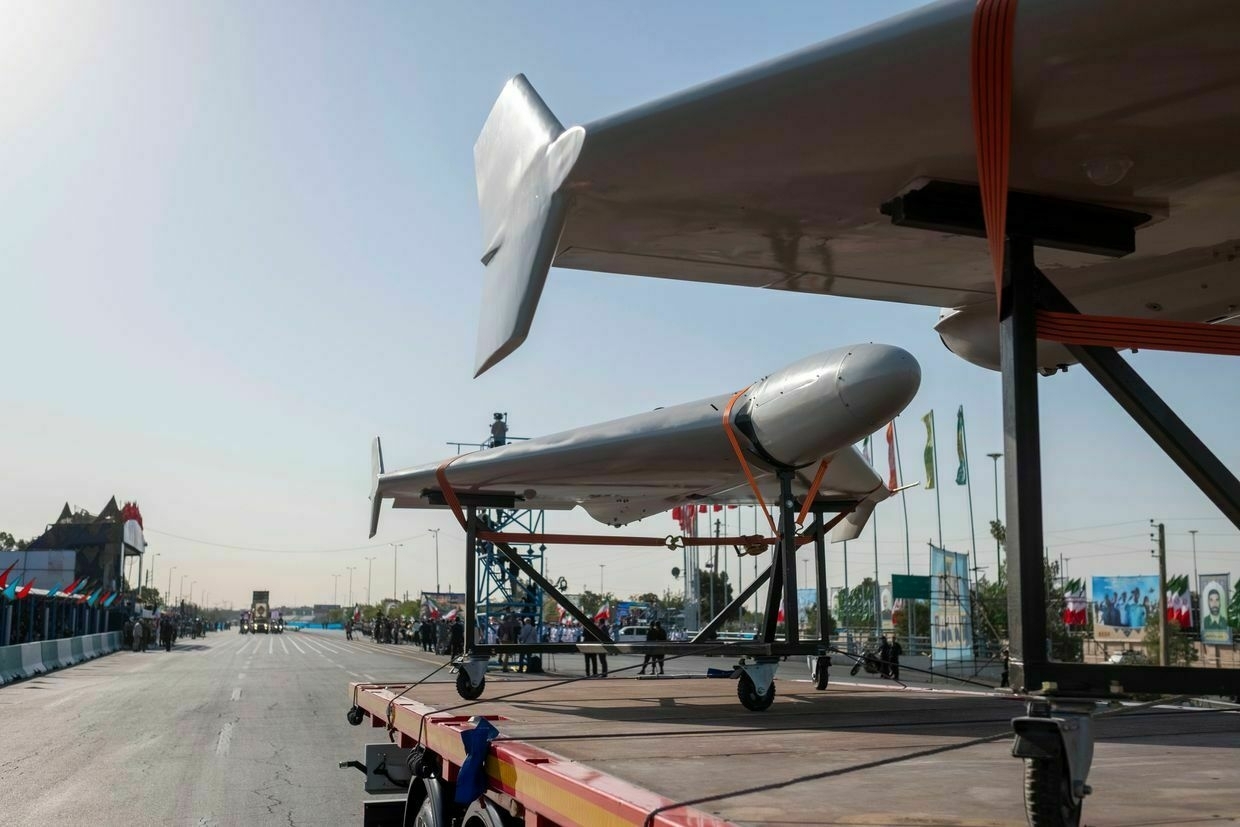-
Germany still weighing Taurus missile supply to Ukraine, Merz says
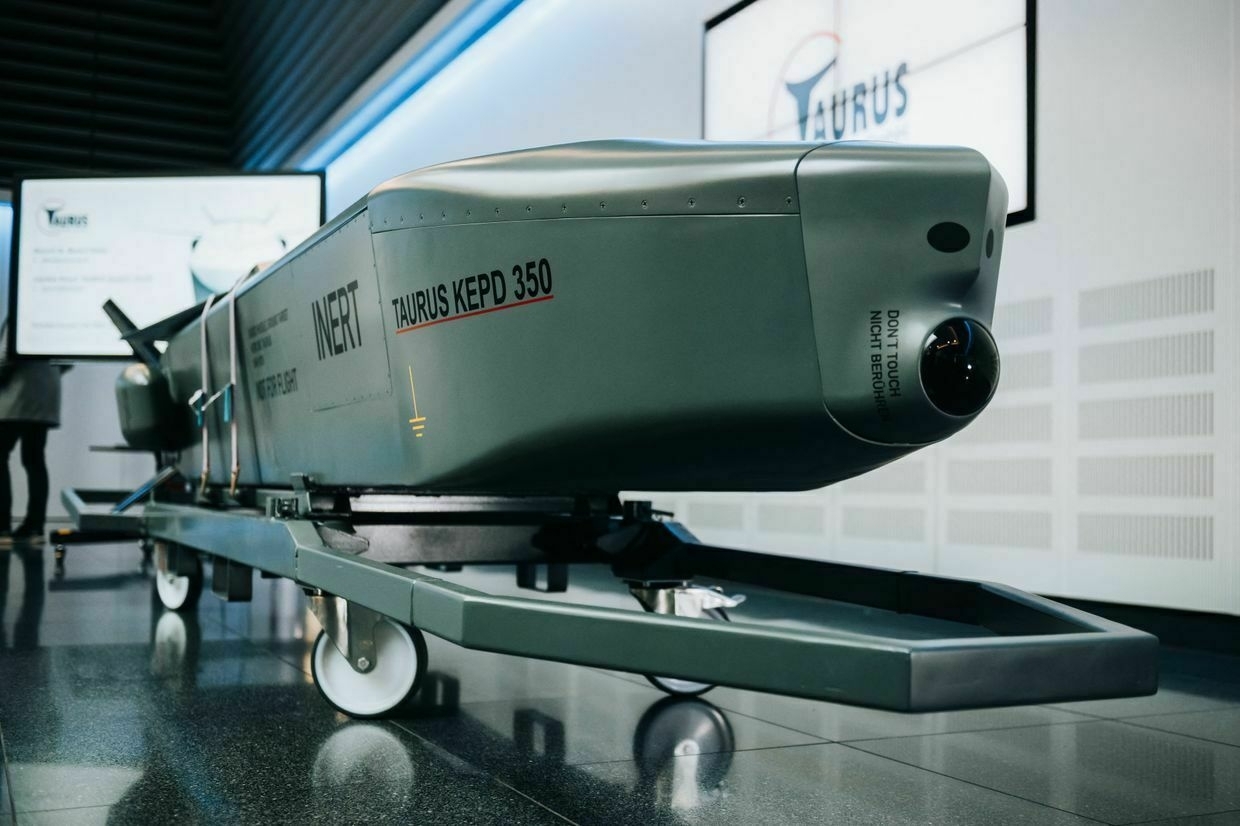
German Chancellor Friedrich Merz said on July 1 that the decision to supply Taurus cruise missiles to Ukraine remains under consideration but stressed that Germany will not become a party to the war.
“It has always been clear that if we supply the Taurus, this weapon will be used not by German soldiers, but by Ukrainians,” Merz told Tagesschau. “By the way, the same applies to other cruise missiles supplied by the United Kingdom or France."
The Taurus is a powerful cruise missile capable of striking targets at a distance of 500 kilometers (300 miles) — a greater range than the long-range weapons Ukraine has received from other partners.
Speaking to the outlet, Merz highlighted the complexity of the Taurus system, noting that it requires extensive training before Ukrainian forces can operate it. In terms of range, speed, and payload, the Taurus missile is similar to the Storm Shadow, which is produced by MBDA’s French division. The key difference lies in the warhead design — Taurus can be programmed to detonate after penetrating fortified targets, such as bunkers or reinforced facilities.
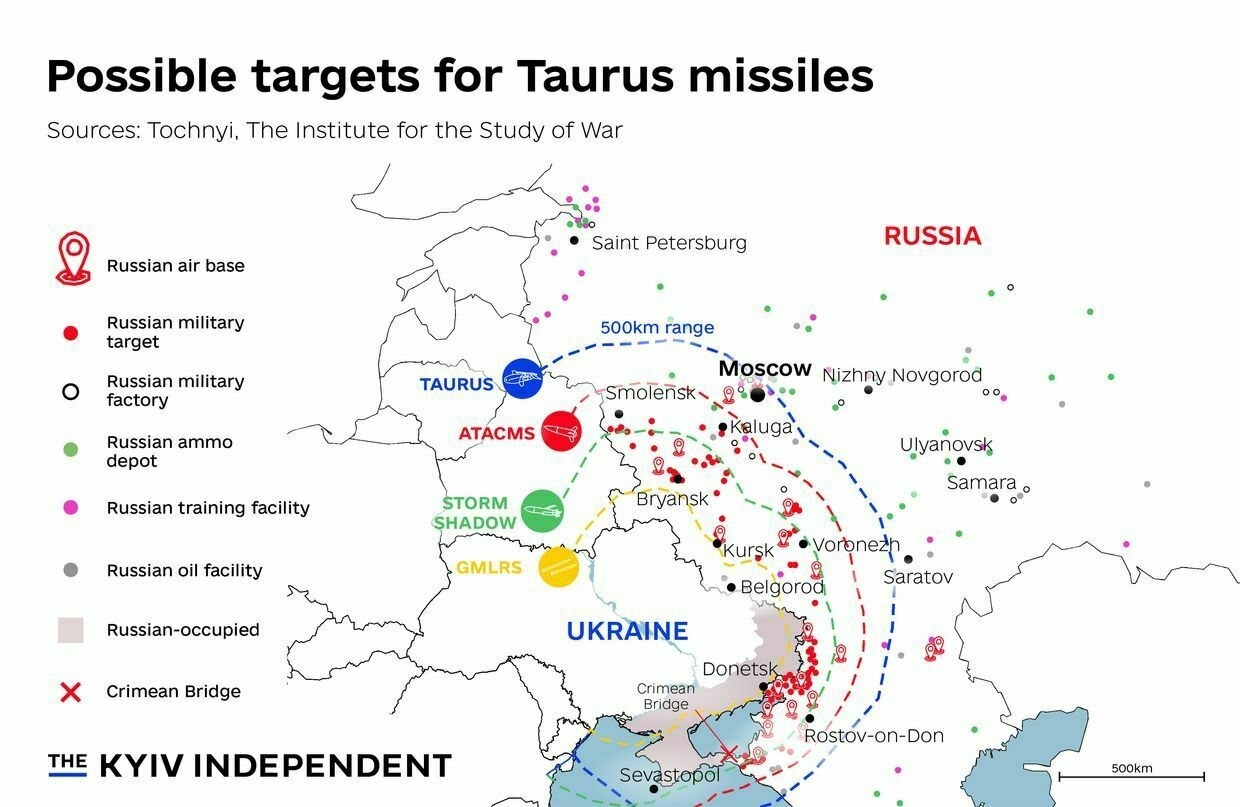
Possible targets for Taurus missiles. (Nizar al-Rifal/The Kyiv Independent) “The problem for us is that this system is extremely complex, and training soldiers on it takes at least six months. Are they already being trained? We haven’t agreed on that yet,” he said. “I discussed this with President (Volodymyr) Zelensky, and I also raised it within the coalition. We haven’t started yet. It is and remains an option.”
The chancellor also added that Germany would no longer publicly disclose details about its military support to Ukraine in order to prevent Moscow from assessing the full scope of Western assistance.
Since Russia launched its full-scale invasion of Ukraine in February 2022, Germany has provided Kyiv with approximately 47.8 billion euros (about $51.8 billion) in total bilateral support, making it Ukraine’s second-largest country donor. This aid includes military equipment, humanitarian assistance, support for refugees, infrastructure repair, and financial aid for energy and winter relief, with military support alone totaling around 28 billion euros ($30 billion).
Ukraine to exit mine ban treaty, citing war demands, realities on the groundUkraine looks to withdraw from a major international treaty on anti-personnel landmines to bolster its defense on the battlefield, where its troops are trying to hold off Russia’s intensifying offensive. President Volodymyr Zelensky, on June 29, had requested that Ukraine withdraw from the 1997 Ottawa Treaty that banned the productionThe Kyiv IndependentAsami Terajima
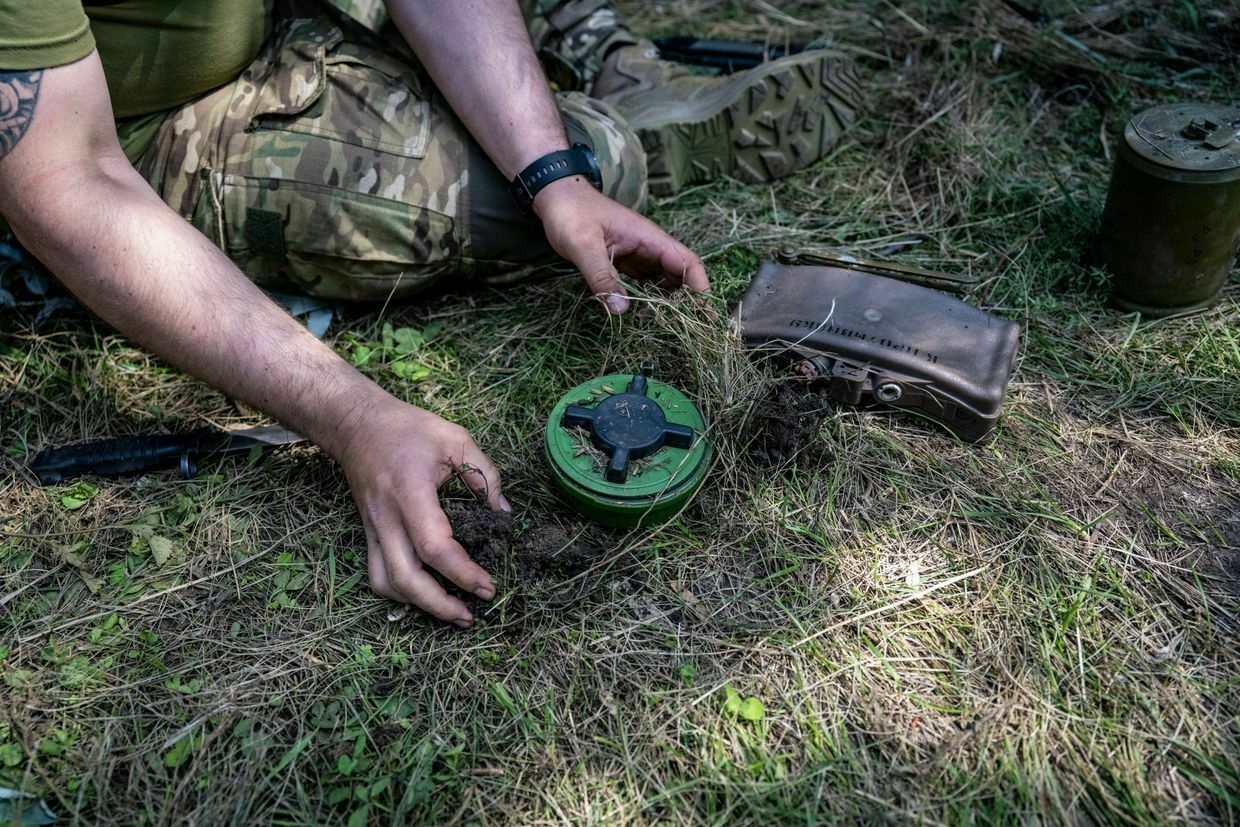
-
Top Russian defense official gets 13 years in graft crackdown
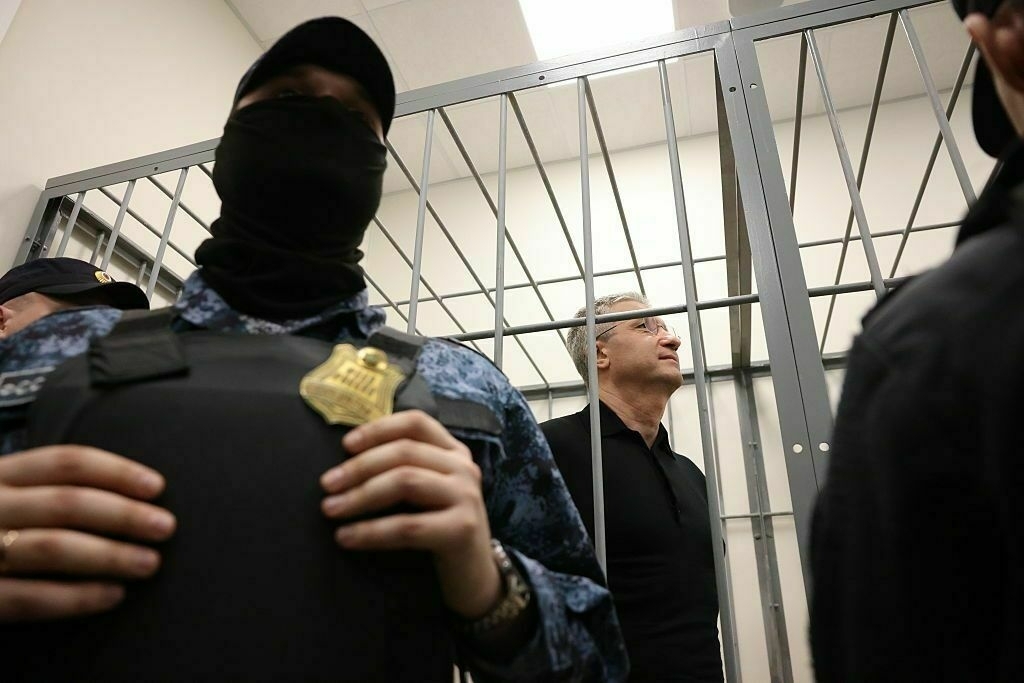
Former Russian Deputy Defense Minister Timur Ivanov was sentenced on July 1 to 13 years in a penal colony after being found guilty of corruption—the toughest sentence so far in a string of graft investigations involving high-level defense officials.
Authorities detained Ivanov in April 2024 on bribery allegations, later adding embezzlement charges in October. Over a dozen individuals, including two other former deputy ministers, have been implicated in separate investigations.
The trial was held behind closed doors due to national security concerns. Ivanov’s co-defendant, Anton Filatov, a former logistics company executive, received a 12.5-year sentence. According to state media, the embezzled amount totaled 4.1 billion roubles ($48.8 million), largely funneled through bank transfers to two foreign accounts.
Ivanov pleaded not guilty. The court stripped him of all state honors and ordered the confiscation of property, vehicles, and cash worth 2.5 billion roubles. Reports in Russian media described his and his wife’s assets, including a luxury apartment in central Moscow, a three-storey English-style mansion outside the city, and a high-end car collection featuring brands such as Bentley and Aston Martin.
Prominent Russian war correspondents known as “Z-bloggers” have publicly condemned the corruption exposed within the defenae sector, especially as the war in Ukraine continues. One of them, Alexander Kots, acknowledged that 13 years is a long sentence but argued that corrupt officials should face trial during wartime as “traitors to the Motherland."
Since 2016, Ivanov oversaw large logistics contracts at the defence ministry, including those tied to property, housing, and medical support.
He served under Sergei Shoigu, who was replaced as defence minister last year but remains influential as the secretary of Russia’s Security Council. Authorities have also arrested two of Shoigu’s other former deputies in separate cases. In April, a court sentenced Lieutenant-General Vadim Shamarin, the former deputy head of the army’s general staff, to seven years for accepting bribes worth hundreds of thousands of dollars.
The wave of prosecutions reflects what appears to be President Vladimir Putin’s effort to address corruption, inefficiency, and waste in Russia’s expansive military budget, which accounts for 32% of federal spending this year.
Ukraine’s new interceptor UAVs are starting to knock Russia’s long-range Shahed drones out of the skyRussia’s Shahed drone swarms are pummeling Ukraine on a nightly basis, inflicting ever more death and destruction in cities that had managed to carve out some sense of normalcy amid wartime. Civilian alarm has grown. With traditional air defense stockpiles running low, the government is banking on newly createdThe Kyiv IndependentKollen Post
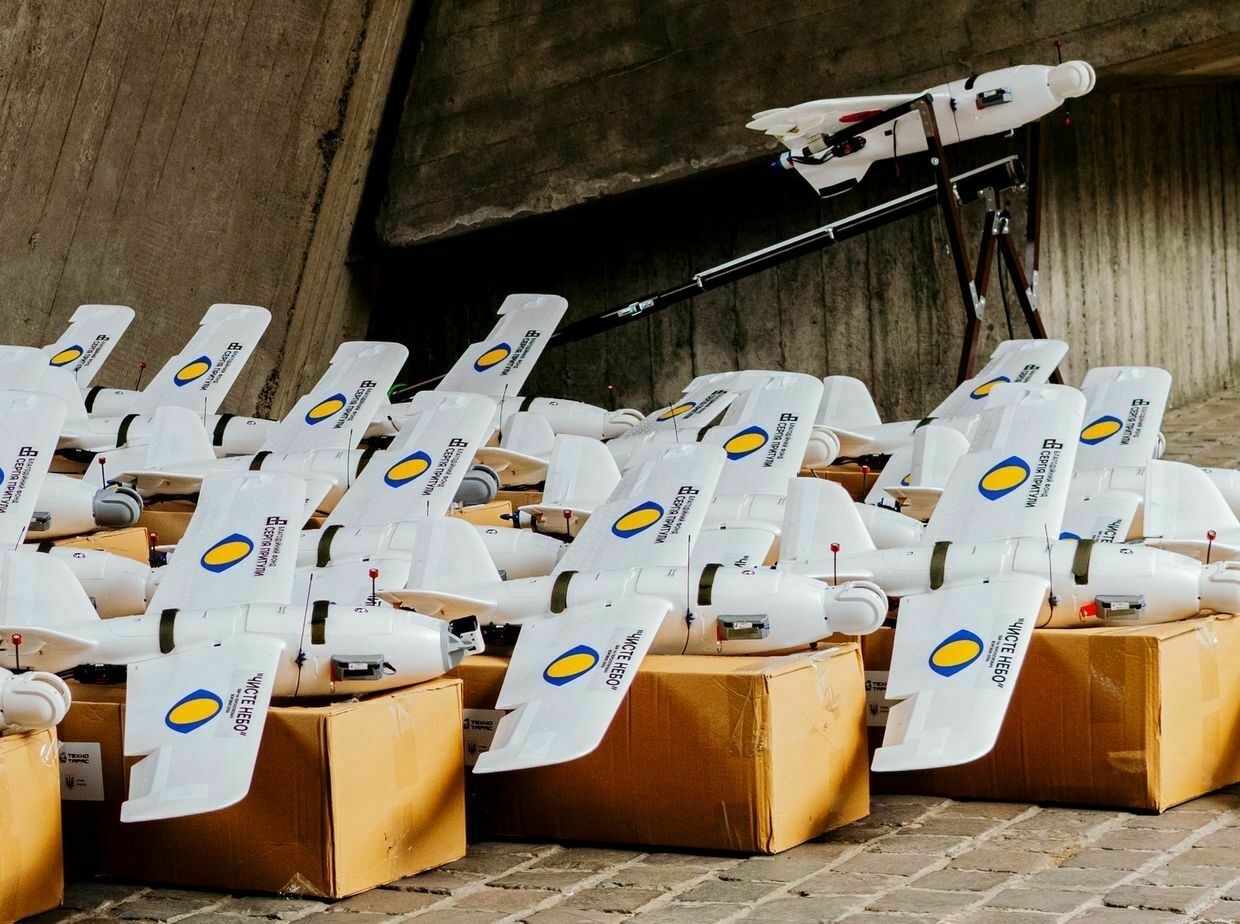
-
As Russia ramps up missile attacks, US halts promised air defense shipments to Ukraine, Politico reports
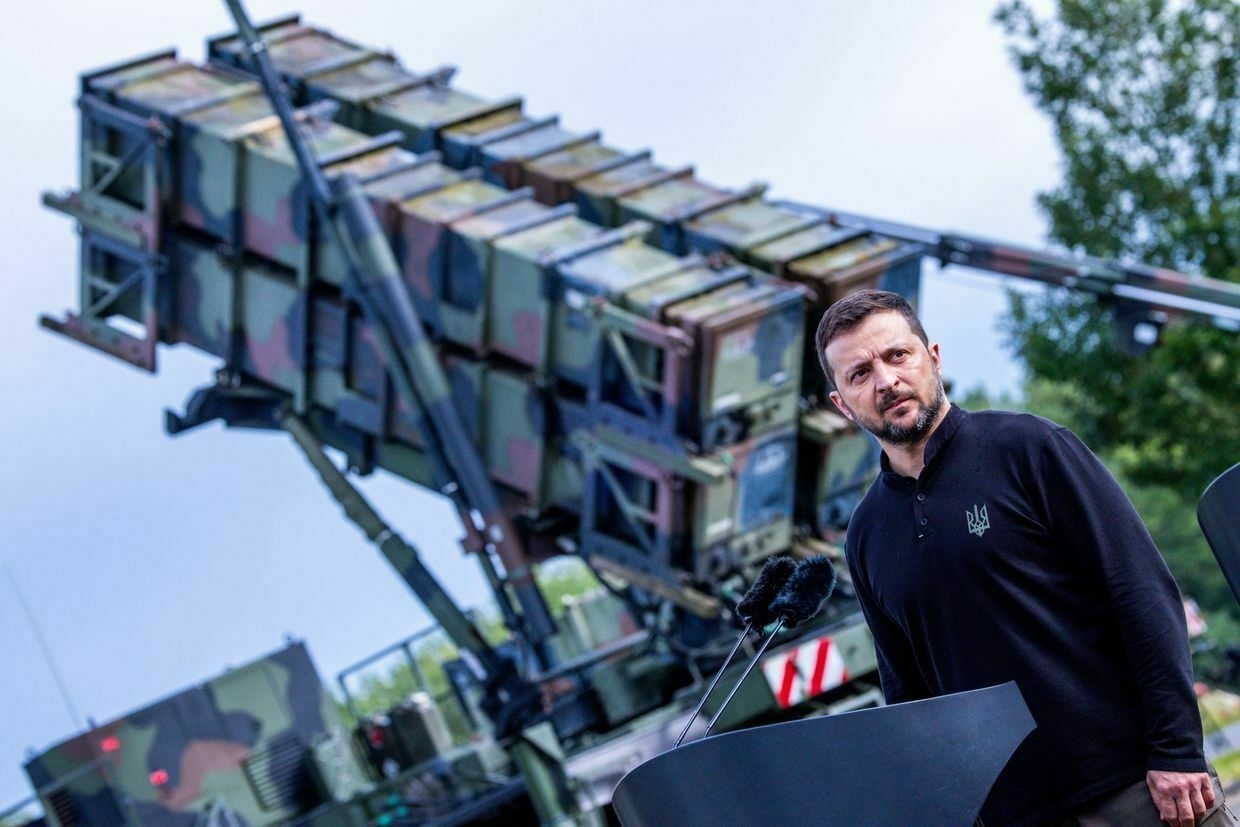
The U.S. Defense Department (DOD) has halted shipments of some air defense missiles and other weapons previously promised to Kyiv out of concerns over the size of U.S. stockpiles, Politico reported on July 1, citing sources familiar with the matter.
The suspension comes as Ukraine faces a shortage of air defense munitions along with increasingly intense and deadly Russian bombardments. In June 2025, Russia launched 5,337 Shahed-type drones at Ukraine, shattering its previous monthly record.
Pentagon policy chief Elbridge Colby made the decision to pause the aid deliveries after conduction a review of U.S. munitions stocks, three sources told Politico. Colby was reportedly concerned about dwindling levels of artillery rounds, air defense missiles, and precision munitions.
Among the items being held back from Ukraine are Patriot air defense missiles, precision artillery rounds, Hellfire missiles, drones, and other missiles Ukraine launches from F-16 fighter jets.
Colby made the decision in June, amid a surge in Russian mass aerial attacks against Ukraine.
The Pentagon’s decision “was made to put America’s interests first following a DOD review of our nation’s military support and assistance to other countries across the globe,” White House Deputy Press Secretary Anna Kelly said in a statement issued after Politico published the story.
“The strength of the United States Armed Forces remains unquestioned — just ask Iran,” she said.
Since his inauguration in January, U.S. President Donald Trump has not approved any additional military aid packages for Ukraine. Defense Secretary Pete Hegseth also announced recently that the U.S. will reduce the total aid it sends Ukraine in its upcoming defense budget.
At the NATO summit in The Hague in late June, Trump said he would “see” if the U.S. could supply Kyiv with additional missiles for its Patriot systems.
“They (Ukraine) do want to have the anti missiles, as they call them, the Patriots, and we’re going to see if we can make some available,” he said after meeting with President Volodymyr Zelensky.
“They are very hard to get. We need them too. We are supplying them for Israel, and they are very effective."
But according to a source who spoke to Politico, plans to reduce and redirect air defense munitions and other weapons for Ukraine have been in the works for months. The administration is looking to redirect artillery shells, tank shells, and air defense systems to Israel or back to Washington.
“They have proposed repeatedly since March to pause the shipments,” the person said.
Colby, the reported architect of the decision, has previously advocated for reducing U.S. military assistance to Ukraine to prioritize deterrence efforts in Asia.
Russia on June 29 launched the largest missile and drone attack against Ukraine since the start of its full-scale war.
Ukraine’s new interceptor UAVs are starting to knock Russia’s long-range Shahed drones out of the skyRussia’s Shahed drone swarms are pummeling Ukraine on a nightly basis, inflicting ever more death and destruction in cities that had managed to carve out some sense of normalcy amid wartime. Civilian alarm has grown. With traditional air defense stockpiles running low, the government is banking on newly createdThe Kyiv IndependentKollen Post
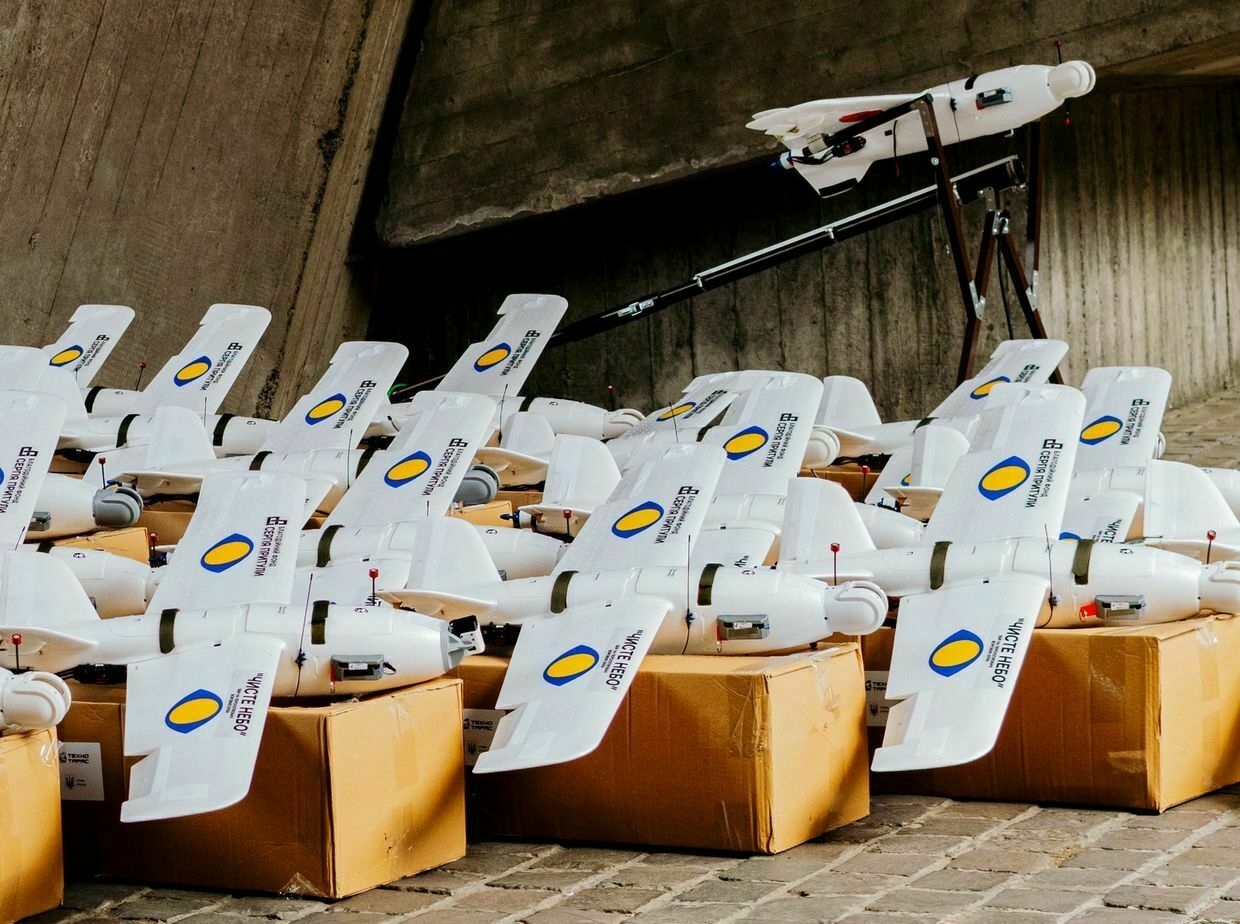
-
'Important facility hit' — Ukraine attacks Russian oil refinery in Saratov Oblast, military says
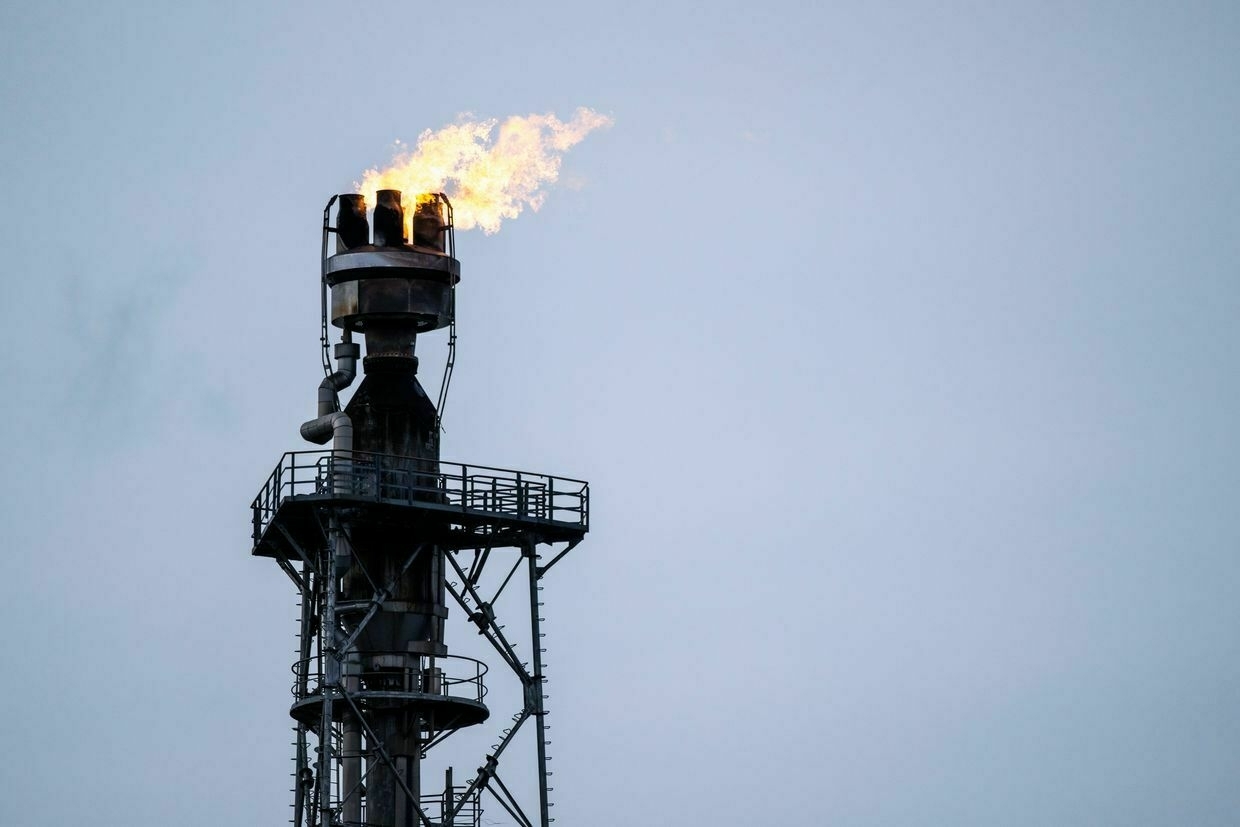
Ukrainian drones struck the Saratovorgsintez oil refinery in Russia’s Saratov Oblast, causing damage to the facility, Ukraine’s General Staff reported on July 1.
“An important facility has been hit,” the General Staff said via its official Telegram channel.
The Saratovorgsintez refinery and chemical plant, owned by Russian energy giant Lukoil, is located nearly 1,500 kilometers (930 miles) from Ukraine’s border in the city of Saratov. The city hosts multiple strategic military and industrial sites.
The refinery was targeted to “reduce the enemy’s offensive capabilities,” the General Staff wrote.
“The occupiers use the capacity of this refinery to supply fuel and lubricants to Russian military units involved in the armed aggression against Ukraine.”
The attack was a joint operation carried out by Ukraine’s military intelligence agency (HUR) and other military units, the General Staff said. A fire broke out at the site of the attack and damage to the refinery’s technological installations has been confirmed. The full consequences of the strike are still being investigated.
The Kyiv Independent could not verify these claims.
The report is the latest in a series of announcements on July 1 about successful Ukrainian strikes on Russian targets. Earlier in the day, HUR released footage of Ukraine’s UJ-26 drones, commonly known as Bober (Beavers), targeting high-value Russian air defenses and a fighter jet in occupied Crimea.
The Security Service of Ukraine (SBU) also announced that Ukrainian drones struck a major Russian military plant in the city of Izhevsk, over 1,300 kilometers (800 miles) from the front lines.
Ukraine also hit a Russian command post in occupied Donetsk Oblast, according to the General Staff.
Ukraine war latest: Ukrainian drones strike Russian plant 1,300km from border, SBU source saysKey developments on July 1: * ‘With surgical precision’ — Ukrainian drones strike Russian plant 1,300km away, SBU source says * Russian missile strike on Dnipropetrovsk Oblast kills brigade commander, injures 30 people, Zelensky says * Ukrainian forces hit Russian command post in occupied Donetsk Oblast, General Staff says * Zelensky signs ratification ofThe Kyiv IndependentThe Kyiv Independent news desk
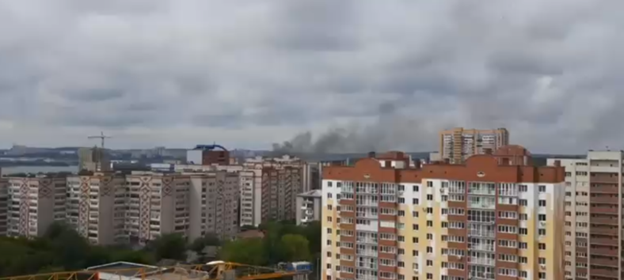
-
Ukraine to launch joint weapons production program with Ramstein summit countries
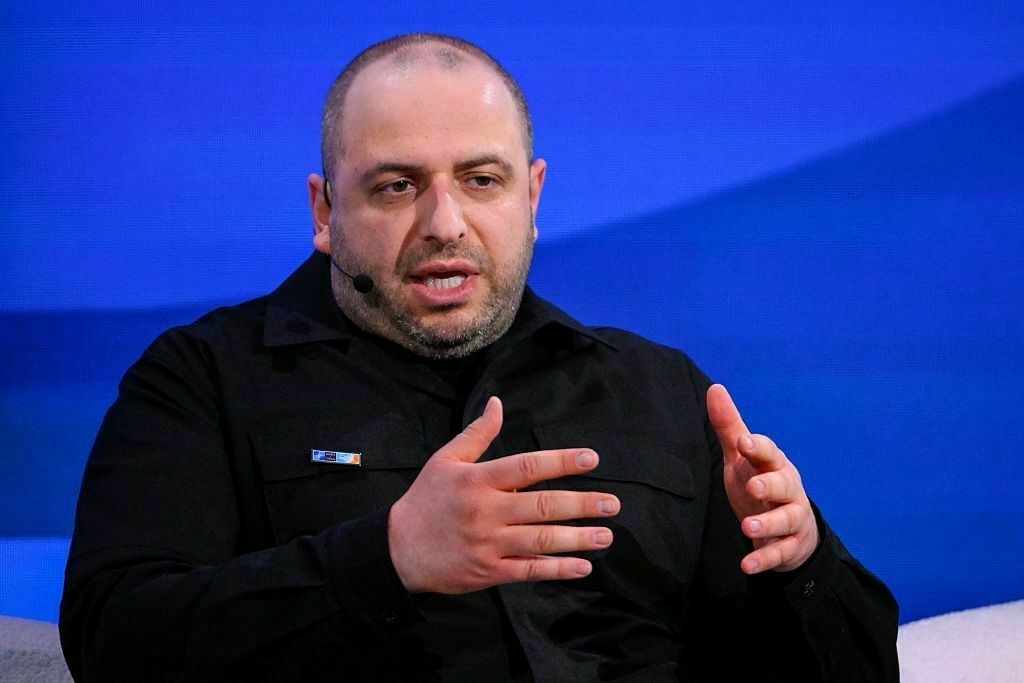
Ukraine is launching a joint weapons production program with members of the Ukraine Defense Contact Group (UDCG), or Ramstein summit participants, Defense Minister Rustem Umerov announced on July 1.
The UDCG was formed in 2022 under former U.S. President Joe Biden to coordinate military assistance for Ukraine among about 50 of Kyiv’s allies.
As part of a new joint production program, new factories and weapons manufacturing facilities will be built in Ukraine and abroad, Umerov said in a social media post. The international sites will be UDCG member countries participating in the Ramstein-format summit.
New legal and tax regulations will also be put in place for Ukrainian weapons manufacturers, facilitating the construction of new sites and allowing them to rapidly scale up production, Umerov said.
The Defense Ministry on July 1 joined the Verkhovna Rada (Ukraine’s parliament) Finance, Tax, and Customs Committee in presenting four draft laws regarding domestic weapons production “aimed at developing the industry.” The legislation introduces amendments to tax, customs, and budget regulations, as well as the Criminal Code.
The first vote on the new legislative package is expected to take place in a month, according to Umerov.
“This is a new type of military-industrial cooperation, where Ukraine is an equal partner and player in the global defense market,” he said.
As Ukraine scales up domestic defense production, President Volodymyr Zelensky has been lobbying foreign partners to provide funding to help match its manufacturing capacity. At the NATO summit in The Hague, Ukraine signed agreements on joint weapons production with the U.K. and Denmark. Norway also pledged to jointly develop air defense systems with Kyiv.
-
Ukraine to exit mine ban treaty, citing war demands, realities on the ground
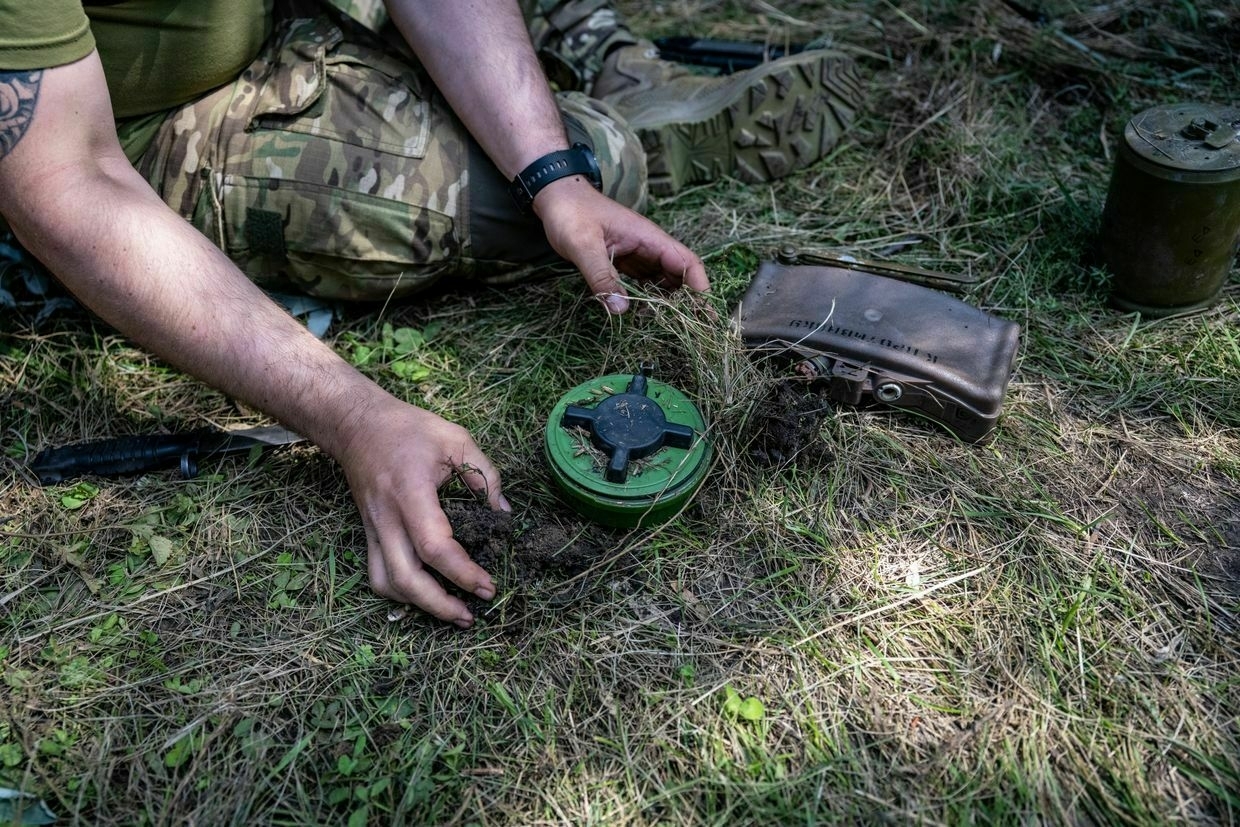
Ukraine looks to withdraw from a major international treaty on anti-personnel landmines to bolster its defense on the battlefield, where its troops are trying to hold off Russia’s intensifying offensive.
President Volodymyr Zelensky, on June 29, had requested that Ukraine withdraw from the 1997 Ottawa Treaty that banned the production and use of indiscriminate anti-personnel mines. Though acknowledging the “complexities” that Ukraine may face in exiting such a treaty during war, he stressed that these explosives are an irreplaceable tool in defending the country.
“Russia has never been a party to this treaty and uses anti-personnel mines with extreme cynicism,” Zelensky said in his address afterward.
Anti-personnel mines are highly controversial explosive devices that can be set off by small pressure, posing a grave long-term threat to civilians. Usually buried or concealed on the ground, they are used in warfare to incapacitate or kill the foe’s personnel.
Kyiv’s move to withdraw the Ottawa Treaty follows a similar action from countries neighboring Russia, such as Finland, the Baltic states, and Poland, who have announced their intention to withdraw or have already exited the treaty.
International observers such as Human Rights Watch are scrutinizing Ukraine’s decision to withdraw from the treaty, which the war-torn country signed in 2005, 17 years before the start of the all-out war.
“Given that Ukraine is in the midst of a war, this is a symbolic move aimed at giving Ukraine political cover to flagrantly violate long-standing prohibitions on developing, producing, and using anti-personnel mines,” said Mary Wareham, deputy director of the Crisis, Conflict and Arms Division at Human Rights Watch.
“It is important for Ukraine, especially in solidarity with the Baltic and Eastern European countries, which understand the threats from Russia.”
Citing Article 20 of the Ottawa Treaty, Human Rights Watch stressed that it takes half a year after the state submits a notice to the United Nations for the withdrawals to come into effect, and that it is not allowed to exit the treaty if the state is still in an armed conflict at the end of that period.
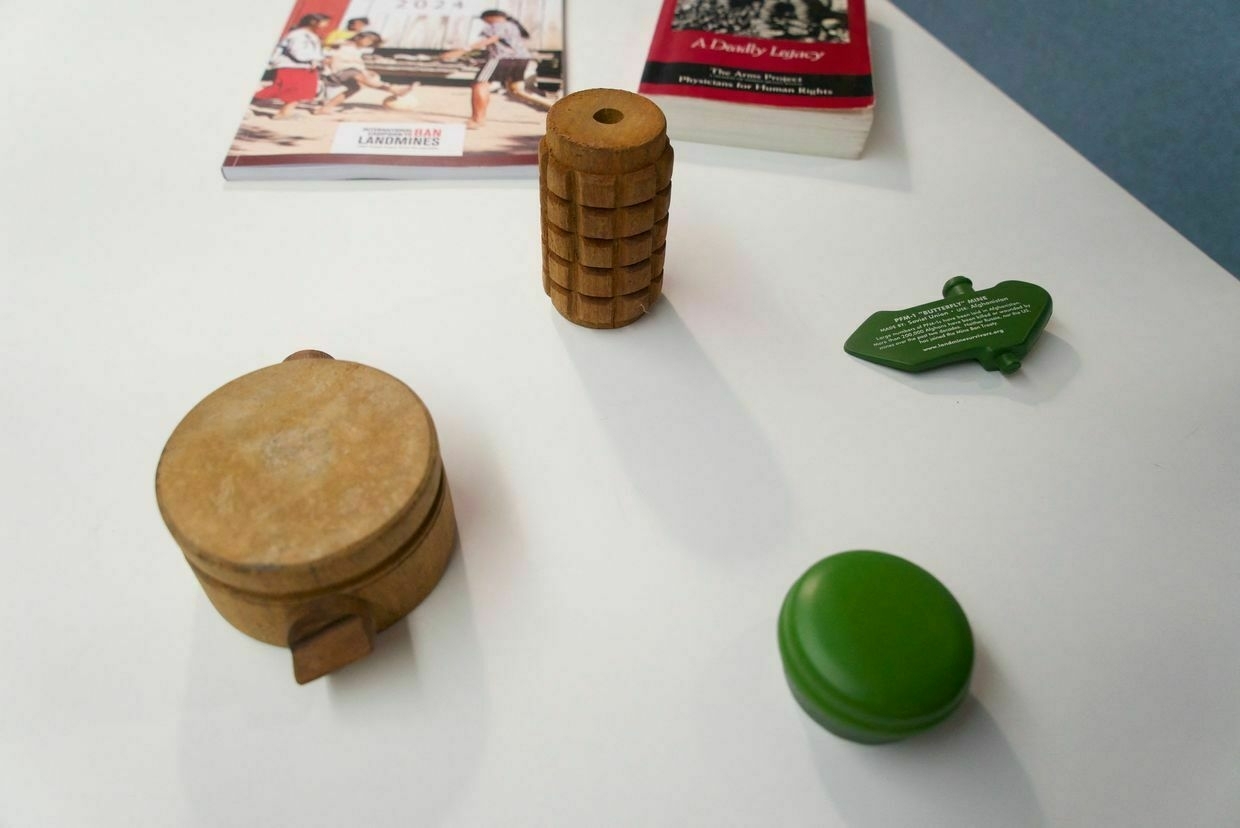
Replicas of anti-personnel landmines prohibited under the Mine Ban Treaty sit on a table at the office of Human Rights Watch in Washington, D.C., U.S. on Nov. 20, 2024. (Bastien Inzaurralde / AFP via Getty Images) "Bringing back anti-personnel mines is a choice that risks causing even more suffering and casualties, over the short and long term," Wareham told the Kyiv Independent.
Refraining from commenting on "who lays what where" and the transfer of weapons between countries, U.K.-based demining nonprofit HALO Trust stressed that the treaty has been "instrumental in saving millions of people's lives."
Ukrainian lawmaker Roman Kostenko, who has pushed government institutions to withdraw from the treaty for the past six months, said the parliament would consider the exit from the treaty in mid-July. He doesn't expect there to be an obstacle to achieving parliamentary approval despite the initial hesitation in the earlier months.
"It is important for Ukraine, especially in solidarity with the Baltic and Eastern European countries, which understand the threats from Russia," Kostenko told the Kyiv Independent.
Contrary to Human Rights Watch, Kostenko said that he believes Ukraine can use the Vienna Convention on the Law of Treaties, which allows a country to withdraw from international agreements if circumstances change, as it is Russia that attacked Ukraine in 2014 and 2022.
Anti-personnel mines in warfareMilitary experts said that anti-personnel mines, often fired from artillery systems or planted by sappers mechanically, help Ukraine inflict casualties on advancing Russian troops from afar. Already used in combat despite the treaty, the anti-personnel mines have made it more difficult for Russian troops to approach, especially well-protected positions.
Ruslan Gorbenko, a lawmaker from the ruling Servant of the People who regularly travels to the war-torn east and keeps in touch with the military, confirmed that Ukraine already uses anti-personnel mines as a necessary measure to defend against advancing Russian troops that also use them.
Gorbenko told the Kyiv Independent that Ukraine's move to withdraw from the Ottawa Treaty is "a logical decision at the official level," exempting Ukraine from the international obligations it has undertaken during peacetime.
Russia has never shown an intention to sign or abide by the treaty, making the banning of such weapons during the current war highly unlikely.
While Kostenko, secretary of the parliament's committee on national security, defense and intelligence, said he could not confirm Ukraine's usage of the small landmines, he said that it would allow Ukraine to officially produce the anti-personnel mines and to receive them from non-signatory countries, such as the U.S.
The Biden administration in 2024 approved the transfer of anti-personnel mines to Ukraine in a surprise move to help the country withstand an increasingly tough situation at the front.
Kostenko said that anti-personnel mines would help Ukraine improve fortification, together with engineering barriers, making it harder for Russian troops to approach Ukrainian positions.
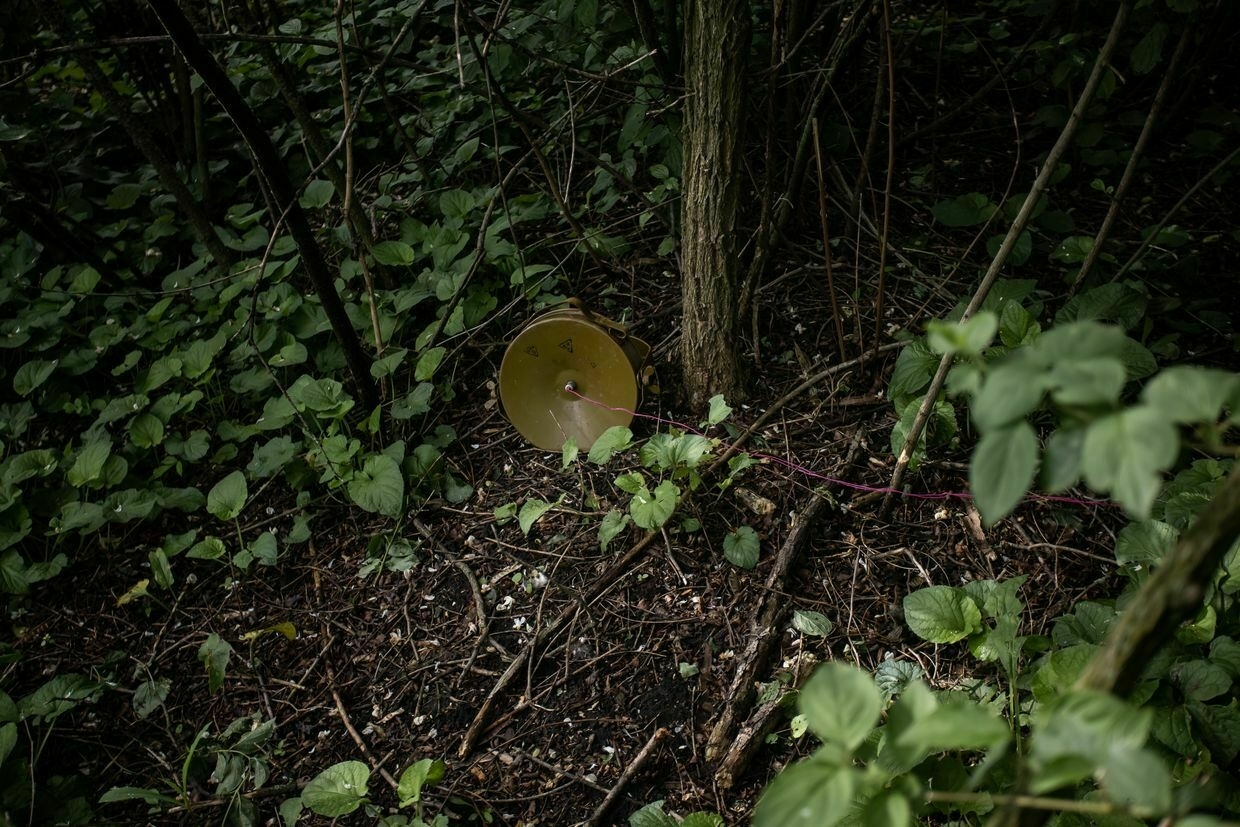
An anti-personnel mine is installed near Ukrainian trenches on the front line in Donetsk Oblast, Ukraine, on May 30, 2023. (Yevhenii Zavhorodnii / Global Images Ukraine via Getty Images) 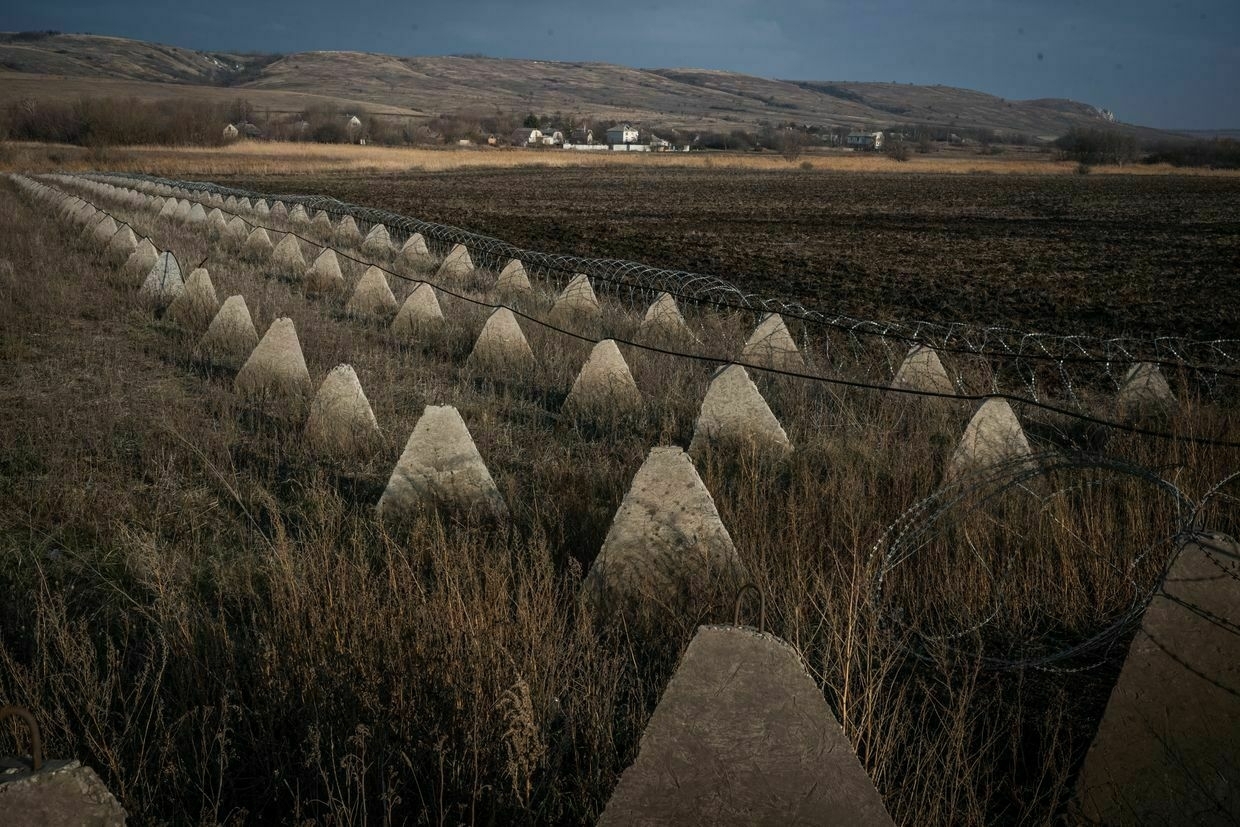
Anti-tank "Dragon's teeth" fortifications are seen in the direction of Chasiv Yar, Donetsk Oblast, Ukraine, on Jan. 26, 2025. (Wolfgang Schwan/Anadolu via Getty Images) Serhiy Hrabskyi, a retired Ukrainian colonel and military analyst, said anti-personnel mines are "purely defensive weapons" that are "critically dangerous for everyone" but necessary to help outnumbered Kyiv's troops grind down overwhelming Russian manpower.
"It is difficult to stop the enemy in a different way," Hrabskyi told the Kyiv Independent, stressing that Ukraine has no choice but to mine its own territory.
Russian troops have struggled to launch an offensive in some areas of Donetsk Oblast, such as the southern part between Pokrovsk and Kostiantynivka, despite the "massive troop usage," thanks to the landmines, including anti-personnel mines launched from a distance, according to Hrabskyi.
Ukraine's need for a large quantity of anti-personnel mines became clear when Russia switched its tactics and began relying heavily on direct charges, according to Serhiy Kuzan, co-founder and chairman of the local think tank Ukrainian Security and Cooperation Center.
Kuzan told the Kyiv Independent that he believes the official withdrawal would not affect the situation on the front in any way, since it is more of a diplomatic move rather than a practical one.
With Western capitals showing no pushback to the decision, international humanitarian organizations remain wary.
The International Committee of the Red Cross (ICRC) said it was "deeply concerned" by any steps that could increase the usage of anti-personnel mines, stressing that they have caused "terrible suffering for civilians all over the world."
"We call on all countries to stay committed to a world without anti-personnel mines and to keep strengthening the rules that protect people during war," Pat Griffiths, ICRC spokesperson in Ukraine, told the Kyiv Independent.
Not tied to Ukraine's withdrawal, Russia, however, has never shown an intention to sign or abide by the treaty, making the banning of such weapons during the current war highly unlikely.
‘Talk about an invasion is everywhere’ — How Lithuania is preparing for war with RussiaThroughout Russia’s full-scale invasion of Ukraine, repeated and escalating warnings of the potential for a wider war have only raised fears in the Baltic states that they could be next in the crosshairs of the Kremlin. Talk about a potential Russian invasion is “very common at parties, gatherings, lunch breaks,The Kyiv IndependentYuliia Taradiuk
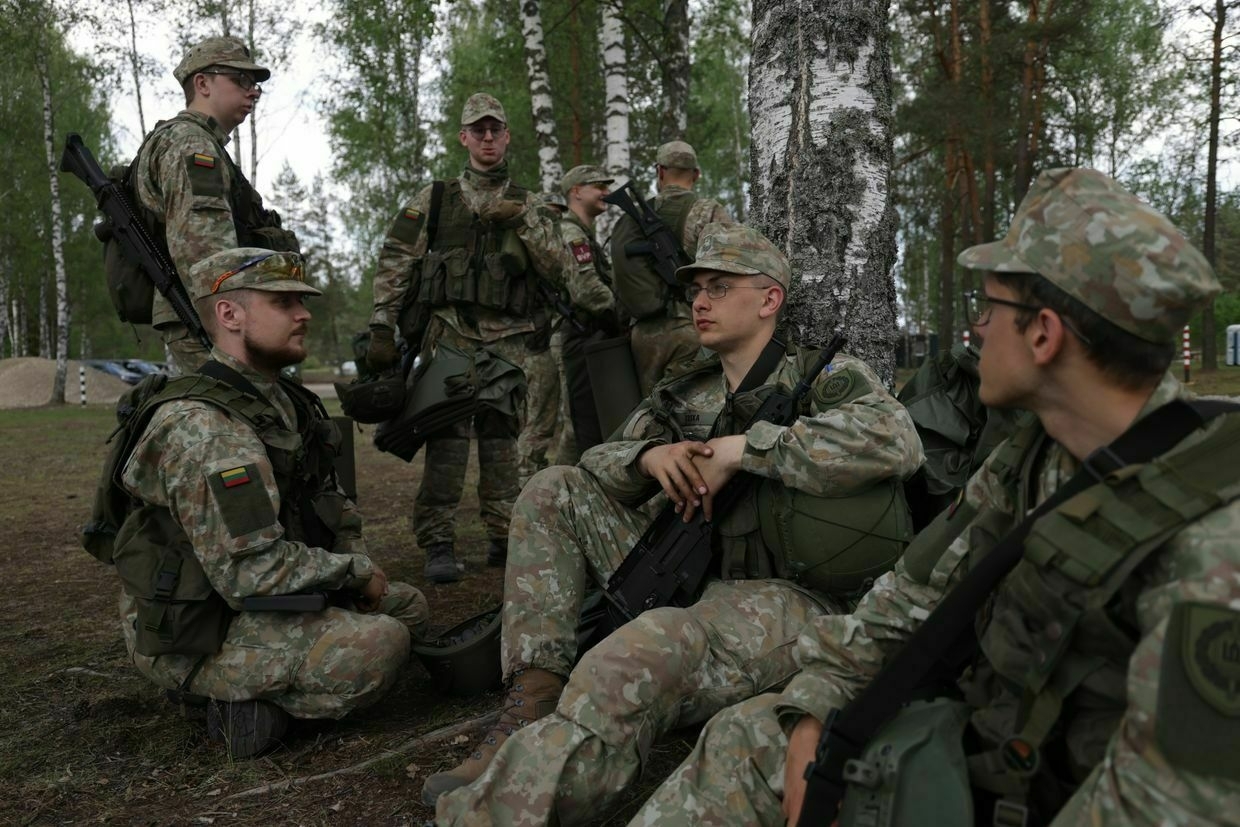
-
North Korea already using Russian Pantsir missiles to defend Pyongyang, Ukraine's intelligence chief says
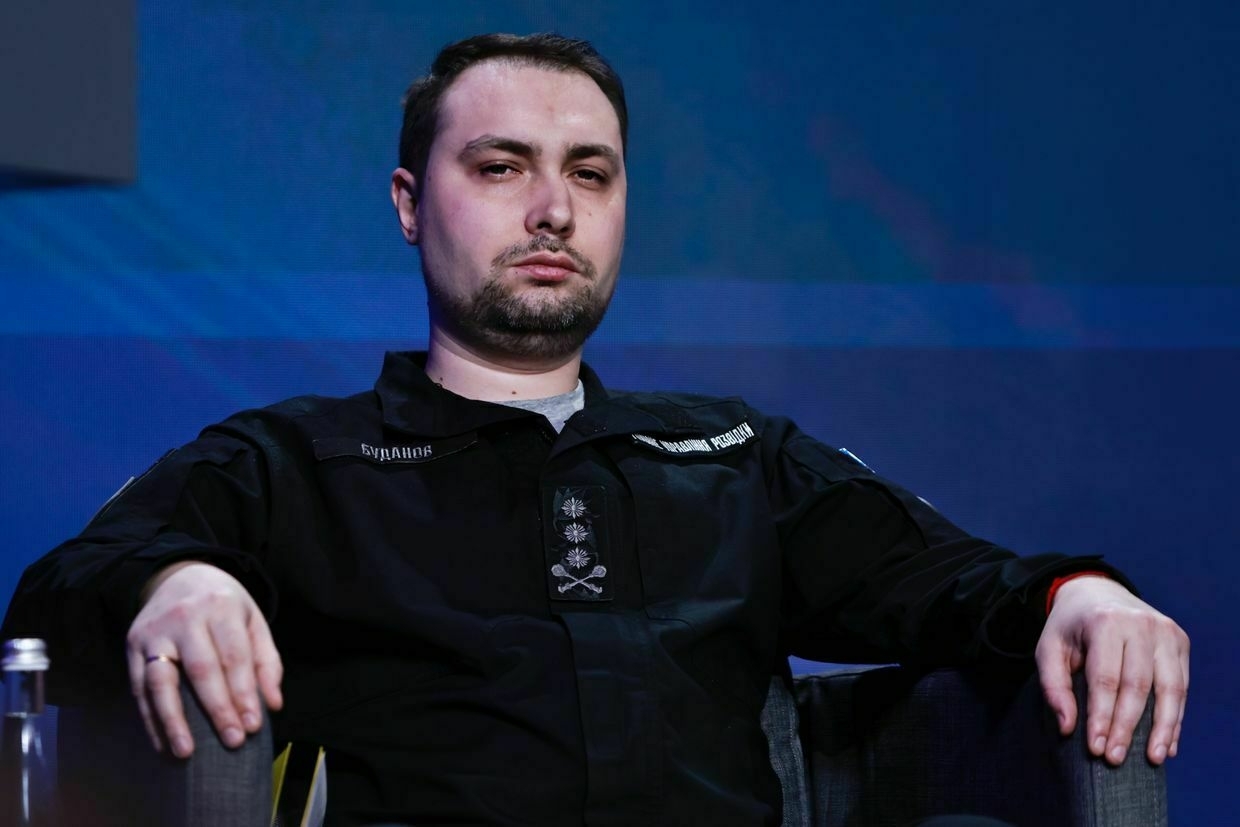
North Korea is already using Russia Pantsir S-1 air defense systems in Pyongyang, Kyrylo Budanov, head of Ukraine’s military intelligence (HUR), said in an interview with Hromadske Radio on July 1.
The arrival of Pantsir missiles is another sign that North Korea is improving its weapons technology and military might through cooperation with Russia. The two nations signed a defense treaty in June 2024, and North Korea has supplied arms and troops to Moscow in exchange for training and advanced military technology.
“I can tell you that, for example, the first Pantsir S-1 installations have already appeared in Pyongyang,” Budanov told Hromadske Radio.
“They are already on combat duty there, guarding their capital. And the Russians are retraining Korean personnel, and soon the Koreans will be working autonomously on this technology."
The Pansir S-1 is the same air defense system Russia uses to guard its military-industrial facilities. It carries an estimated price tag of around $15 million.
North Korea is “currently significantly increasing its military power” through direct cooperation with Russia, Budanov said. It benefits from Russia’s ongoing technology transfers and the “real combat experience” personnel gained by fighting alongside Russian troops against Ukraine.
Budanov also said Ukraine expects “a significant increase” in the number of North Korean citizens in Russia. Some of these citizens will sign up for the Russian military, making it seem less like an official transfer of North Korean personnel and more like voluntary registration from invidivual citizens.
The day before Budanov’s comments, North Korean leader Kim Jong Un publicly honored his country’s soldiers who were killed fighting in Russia’s war against Ukraine. The ceremony coincided with a visit by Russian Culture Minister Olga Lyubimova, illustrating the deepening military alliance between Moscow and Pyongyang continues.
Russia has also reportedly provided North Korea with advanced electronic warfare systems, helped the country build modern warships, and improved its KN-23 ballistic missiles.
In June, Budanov said that Moscow has agreed to assist Pyongyang in mass-producing Shahed-type attack drones.
Russia-Iran alliance wavers as Tehran suffers major blowsTehran, Russia’s main ally in the Middle East, has been dealt a heavy blow as Israel dismantled its network of proxies and then struck targets in Iran. The recent Iranian-Israeli war, which ended with a ceasefire on June 24, showed that the regional balance of power has shifted in Israel’s favor. This could have a major impact on Russian-Iranian relations as Moscow will have to recalibrate its approach to the region. Russian-Iranian cooperation is likely to continue but Iran’s ability to help The Kyiv IndependentOleg Sukhov
The Kyiv IndependentOleg Sukhov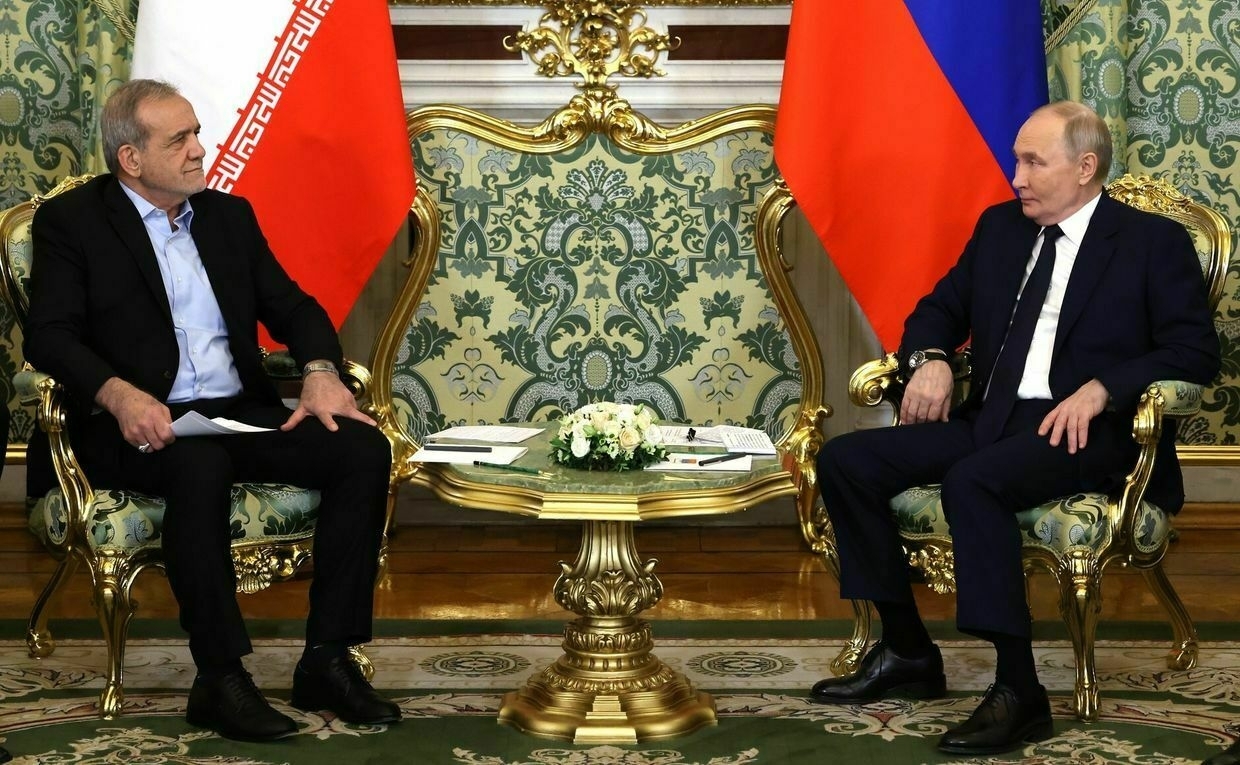
-
Ukraine war latest: Ukrainian drones strike Russian plant 1,300km from border, SBU source says
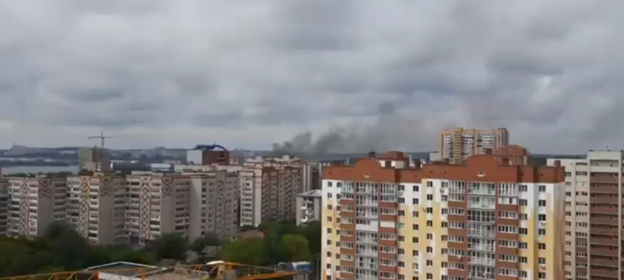
Key developments on July 1:
- ‘With surgical precision’ — Ukrainian drones strike Russian plant 1,300km away, SBU source says
- Russian missile strike on Dnipropetrovsk Oblast kills brigade commander, injures 30 people, Zelensky says
- Ukrainian forces hit Russian command post in occupied Donetsk Oblast, General Staff says
- Zelensky signs ratification of Special Tribunal on Russian aggression
- Russian Su-34 aircraft crashes during training flight, pilot dies, media reports
Ukrainian drones struck a major Russian military plant in the city of Izhevsk, over 1,300 kilometers (800 miles) from Ukrainian-held territory, a source in the Security Service of Ukraine (SBU) told the Kyiv Independent on July 1.
The SBU source said the agency’s long-range drones targeted the Kupol plant in Russia’s Udmurt Republic on the morning of July 1. At least two drones struck production and storage facilities, starting a fire at the site, according to the source.
The facility produces Tor and Osa air defense systems, as well as Harpy attack drones for the Russian military, and is under international sanctions as part of Russia’s defense-industrial complex.
"With surgical precision, the SBU continues to carry out strikes against Russia's military-industrial enterprises contributing to the war effort against Ukraine," the source said.
"Each such operation weakens (Russia's) offensive potential, disrupts weapons production chains, and proves that no part of Russia is a safe zone for its military infrastructure."
Residents of Izhevsk reported explosions early on July 1, while local authorities confirmed a drone strike on a facility in the city. Alexander Brechalov, head of Russia's Udmurt Republic, said emergency services had responded to the attack and that further information would be provided as it became available.
Brechalov later reported casualties, citing deaths and serious injuries, but did not provide specific figures.
Russia's aviation agency temporarily suspended flights in and out of the city's airport following the incident.
Russian Telegram channels reported that no air raid siren was sounded before the drone attack on the Kupol plant. According to Astra, Izhevsk residents also could not access warnings via Telegram due to mobile internet outages, which locals say have persisted for nearly two weeks.
Ukraine’s new interceptor UAVs are starting to knock Russia’s long-range Shahed drones out of the skyRussia’s Shahed drone swarms are pummeling Ukraine on a nightly basis, inflicting ever more death and destruction in cities that had managed to carve out some sense of normalcy amid wartime. Civilian alarm has grown. With traditional air defense stockpiles running low, the government is banking on newly createdThe Kyiv IndependentKollen Post
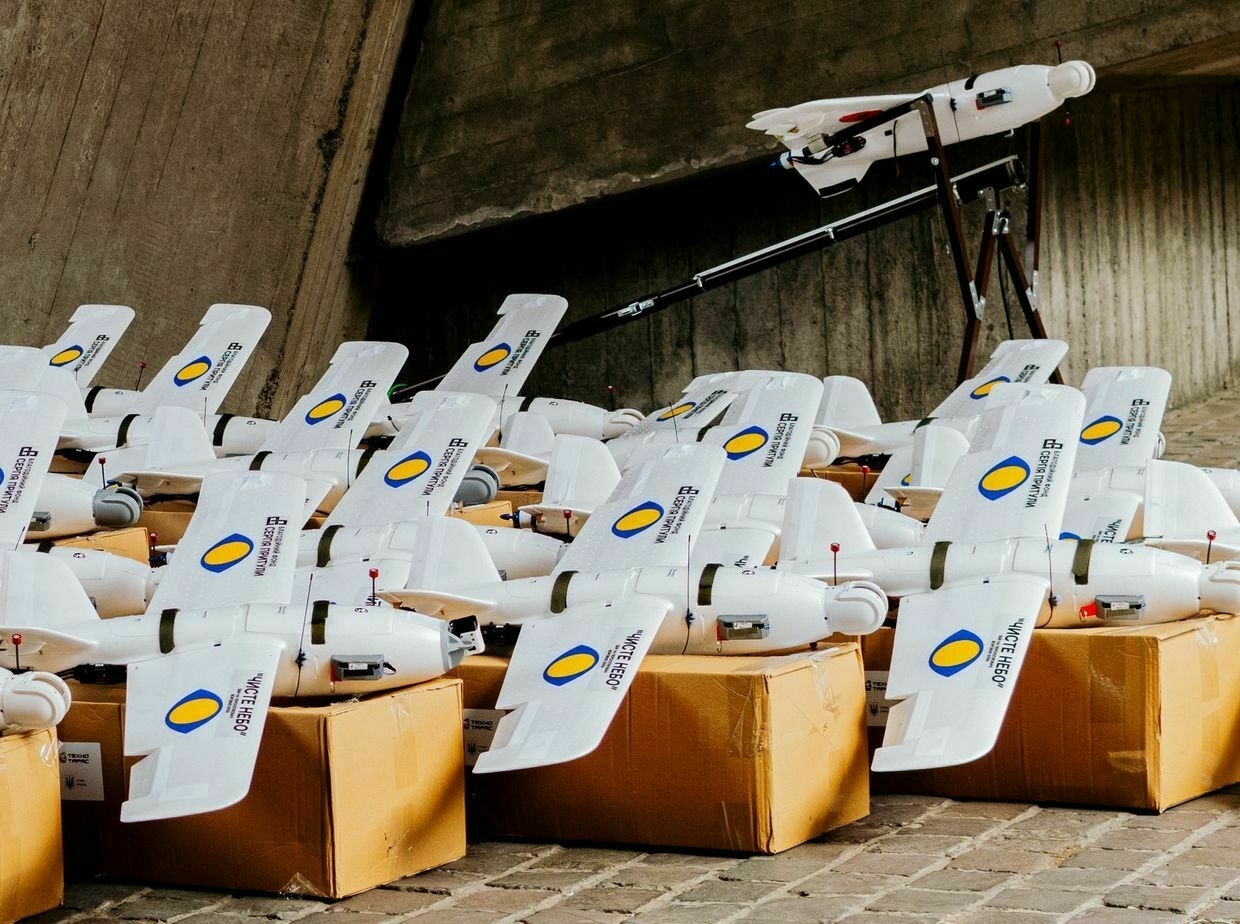
Russian missile strike on Dnipropetrovsk Oblast kills brigade commander, injures 30 people, Zelensky saysA Russian missile attack killed the commander of the 110th Separate Mechanized Brigade, Serhii Zakharevych, and injured 30 people in Huliaipole in Dnipropetrovsk Oblast on July 1, President Volodymyr Zelensky said in his evening address.
The Russian army struck the Kamianske district, where the village of Huliaipole is located, in the morning on July 1, Governor Serhii Lysak reported.
Huliaipole, with a pre-war population of around 1,200, lies in the western part of eastern Dnipropetrovsk Oblast, roughly 70 kilometers (40 miles) from the front line.
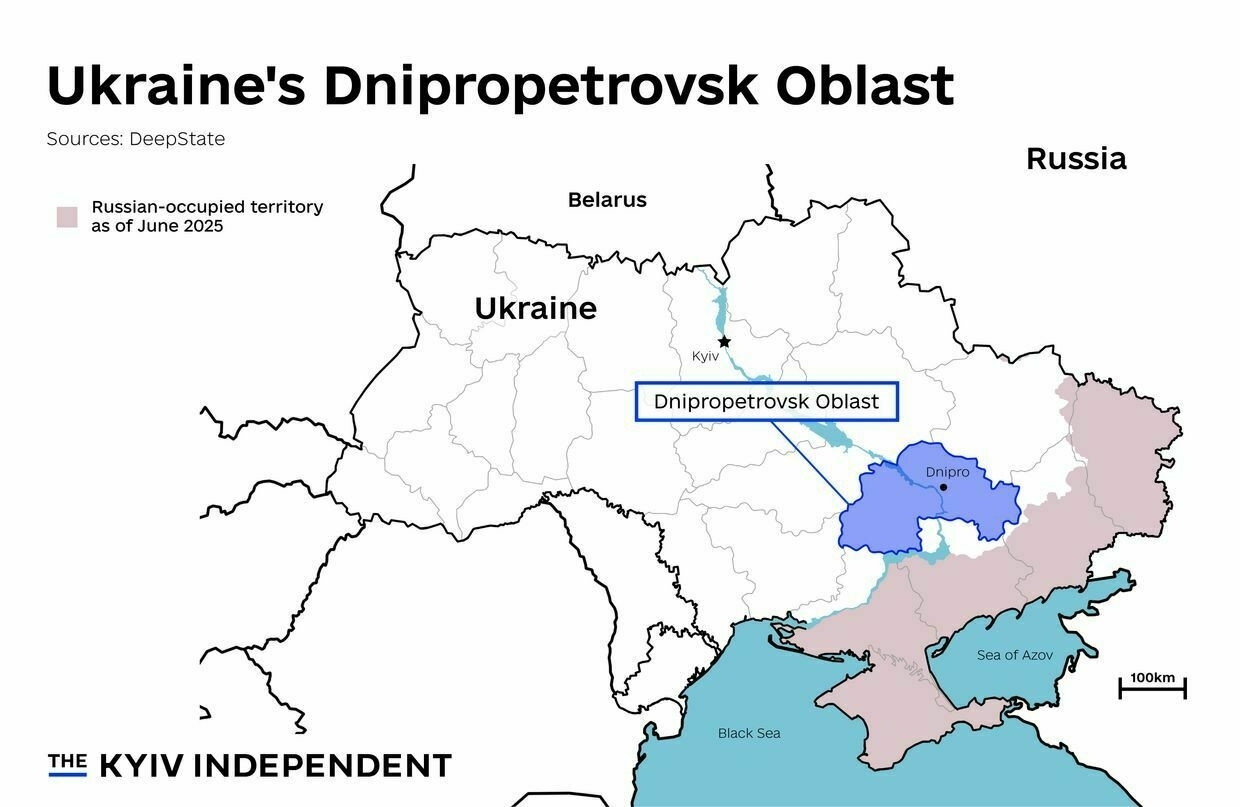
Ukraine's Dnipropetrovsk Oblast (Nizar al-Rifai/The Kyiv Independent) "We will definitely respond to the Russians for this attack," Zelensky said, adding that the investigation into the Russian attack is currently underway and he is waiting for a report from the military command.
Zakharevych graduated from the Odesa Institute of the Ground Forces. After graduation, he led a platoon in a reconnaissance company of the 30th Separate Mechanized Brigade and the 1st Tank Brigade.
In February 2025, he was appointed commander of the 110th Separate Mechanized Brigade. Prior to that, he served as deputy commander of the 33rd Mechanized Brigade.
Zakharevych was involved in preparing three qualification courses for the Ukrainian Special Forces and headed the 47th Special Forces detachment. He participated in combat missions at the front.
"Our army has lost another representative of a new generation of Ukrainian officers who grew up in combat and became models of courage and proactive military leadership," the General Staff's statement read.
Ukrainian forces hit Russian command post in occupied Donetsk Oblast, General Staff saysUkraine struck a command post of the 8th Combined Arms Army of the Russian Armed Forces in the Russian-occupied part of Donetsk Oblast, Ukraine's General Staff reported on July 1, a day after the attack.
On the evening of June 30, explosions were heard in the Russian-occupied Donetsk, the Russian Telegram channel Shot reported. According to residents, several fires were spotted in different parts of the city.
The attack has significantly hampered Russia's ability to plan and conduct operations in the Pokrovsk and Toretsk areas of the front line, the General Staff's statement read.
Russian losses are still being determined.
Ukraine's military regularly strikes military targets in Russian-occupied territories and deep within Russia in an attempt to diminish Moscow's fighting power as it continues its war against Ukraine.
Russia has for months focused its offensive efforts on the embattled town of Pokrovsk in Donetsk Oblast and has recently been escalating attempts to break through to neighboring Dnipropetrovsk Oblast, a region that has not yet seen combat.
Ukraine denied reports that Russian forces breached the regional border in May and June.
Russia-Iran alliance wavers as Tehran suffers major blowsTehran, Russia’s main ally in the Middle East, has been dealt a heavy blow as Israel dismantled its network of proxies and then struck targets in Iran. The recent Iranian-Israeli war, which ended with a ceasefire on June 24, showed that the regional balance of power has shifted in Israel’s favor. This could have a major impact on Russian-Iranian relations as Moscow will have to recalibrate its approach to the region. Russian-Iranian cooperation is likely to continue but Iran’s ability to help The Kyiv IndependentOleg Sukhov
The Kyiv IndependentOleg Sukhov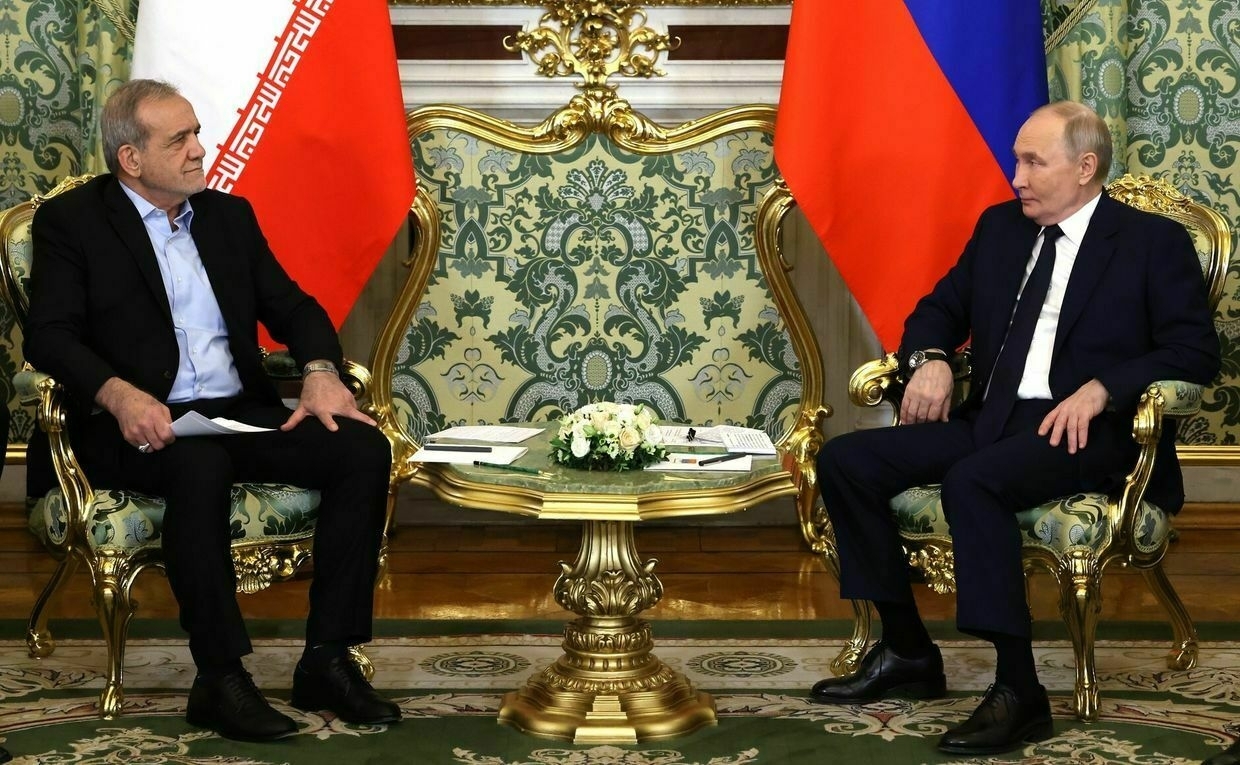
Zelensky signs ratification of Special Tribunal on Russian aggressionPresident Volodymyr Zelensky said on July 1 that he had signed the ratification documents establishing the Special Tribunal for the Crime of Aggression against Ukraine, marking a major step toward prosecuting Russia's leadership.
Ukraine and the Council of Europe signed the agreement establishing the Special Tribunal on June 25 during a ceremony in Strasbourg. Zelensky and Council of Europe Secretary General Alain Berset signed it after more than three years of advocacy and diplomacy.
"The agreement must now be swiftly ratified so that the process of creating the tribunal can begin," Zelensky said in a statement. He also instructed Ukraine's government to urgently submit necessary legislative changes to parliament to ensure Kyiv's full implementation of the agreement.
"I ask members of parliament to treat this as an immediate priority," Zelensky added, urging lawmakers to pass the needed legislation without delay.
The tribunal, once established, would specifically target Russia's top political and military leadership for the crime of aggression, defined as the illegal use of force by one state against another, which existing international bodies, like the International Criminal Court (ICC), are not able to prosecute due to jurisdictional limitations.
Zelensky also called on the Foreign Ministry and the Presidential Office to finalize a roadmap with international partners for the tribunal's launch.
"Already this year, Russia must begin to feel that accountability for the crime of aggression is inevitable," he said. "Aggression is a crime, and Russia's truly inevitable punishment for this crime is in the global interest of everyone in the world who wants their people to live in peace."
Speaking at the Parliamentary Assembly of the Council of Europe (PACE) on June 25, Zelensky thanked the body for championing the idea from its inception and pushing forward international accountability for Russia's invasion.
"It was here in this assembly, that the first call for such a tribunal was made," Zelensky said. "The idea was born here — and now it’s gaining real support from partner countries in Europe and beyond."
The tribunal is designed to close a legal gap that currently prevents the ICC from prosecuting Russia for the crime of aggression, although the court has issued arrest warrants for Russian President Vladimir Putin and Russian Children's Rights Commissioner Maria Lvova-Belova in connection with the deportation of Ukrainian children.
Want to invest in Ukrainian startups from the US? This platform promises to be the bridgeHans Braunfisch wants Americans to invest in Ukrainian startups, but there’s a problem: there’s no clear path for individual investors to put money into the more than 26,000 Ukrainian startups out there. The former PwC consultant plans to change that with Pravo Venture, a platform streamlining foreign investment forThe Kyiv IndependentDominic Culverwell
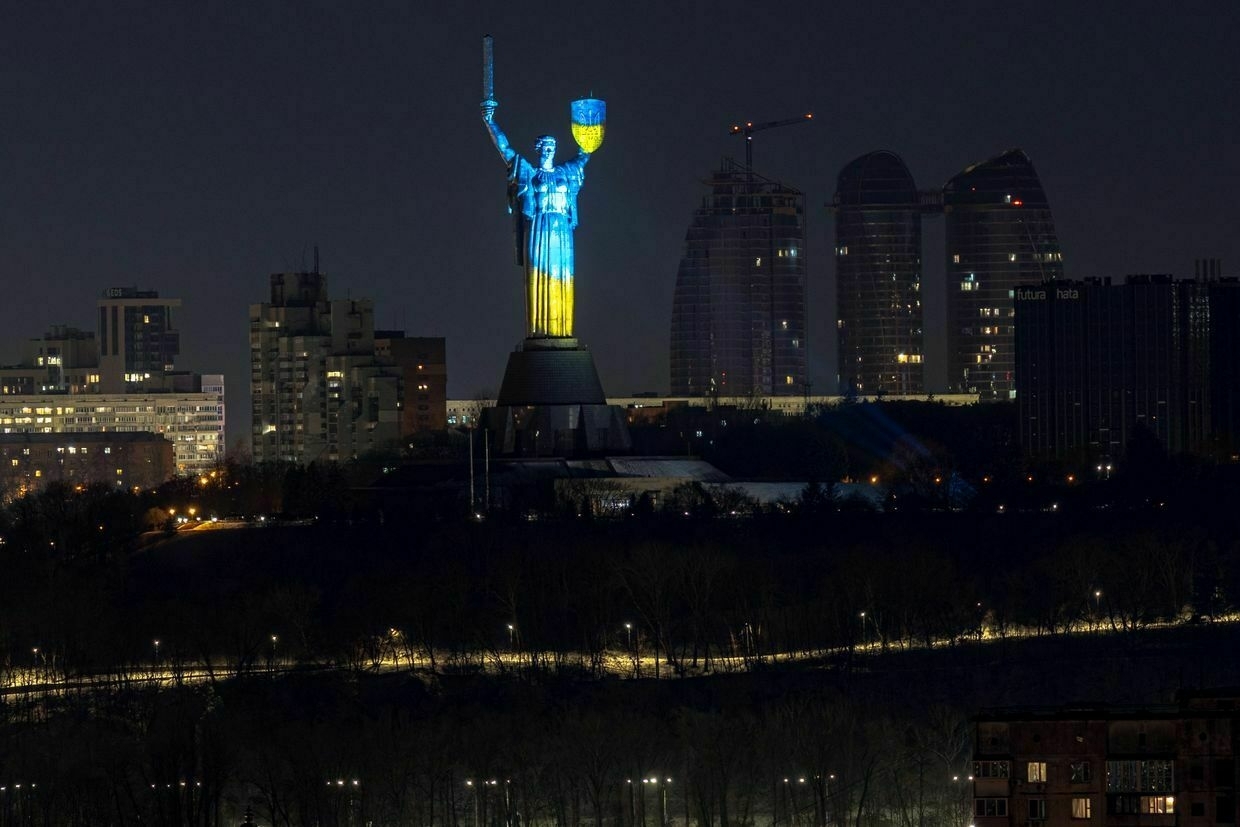
Russian Su-34 aircraft crashes during training flight, pilot dies, media reportsA Russian Air Force Su-34 fighter jet crashed during a training exercise in Nizhny Novgorod Oblast, Russian state media Ria Novosti reported on July 1, citing Russia's Defense Ministry.
One of the pilots died due to sustained injuries, Russian media outlet Mash reported later in the day. After ejecting, he landed on a tree. Medics could not save him, according to Mash.
One of the landing gear struts was not released during landing. The crew made several attempts to fix the malfunction in flight, but it did not help.
The crew successfully ejected from the plane, and there were no casualties, according to the ministry.
The Russian Su-34 is a Soviet-era medium-range fighter-bomber.
Plane and helicopter crashes have become more commonplace in Russia since the beginning of the full-scale invasion of Ukraine and the subsequent imposition of Western sanctions.According to the U.K. intelligence, Russia has lost over 30 Su-34 aircraft since the start of the full-scale invasion in 2022.
Moscow does not comment on its losses it faces inn its war against Ukraine.
Note from the author:
Ukraine War Latest is put together by the Kyiv Independent news desk team, who keep you informed 24 hours a day, seven days a week. If you value our work and want to ensure we have the resources to continue, join the Kyiv Independent community.
-
Russian missile strike on Dnipropetrovsk Oblast kills brigade commander, injures 30 people, Zelensky says
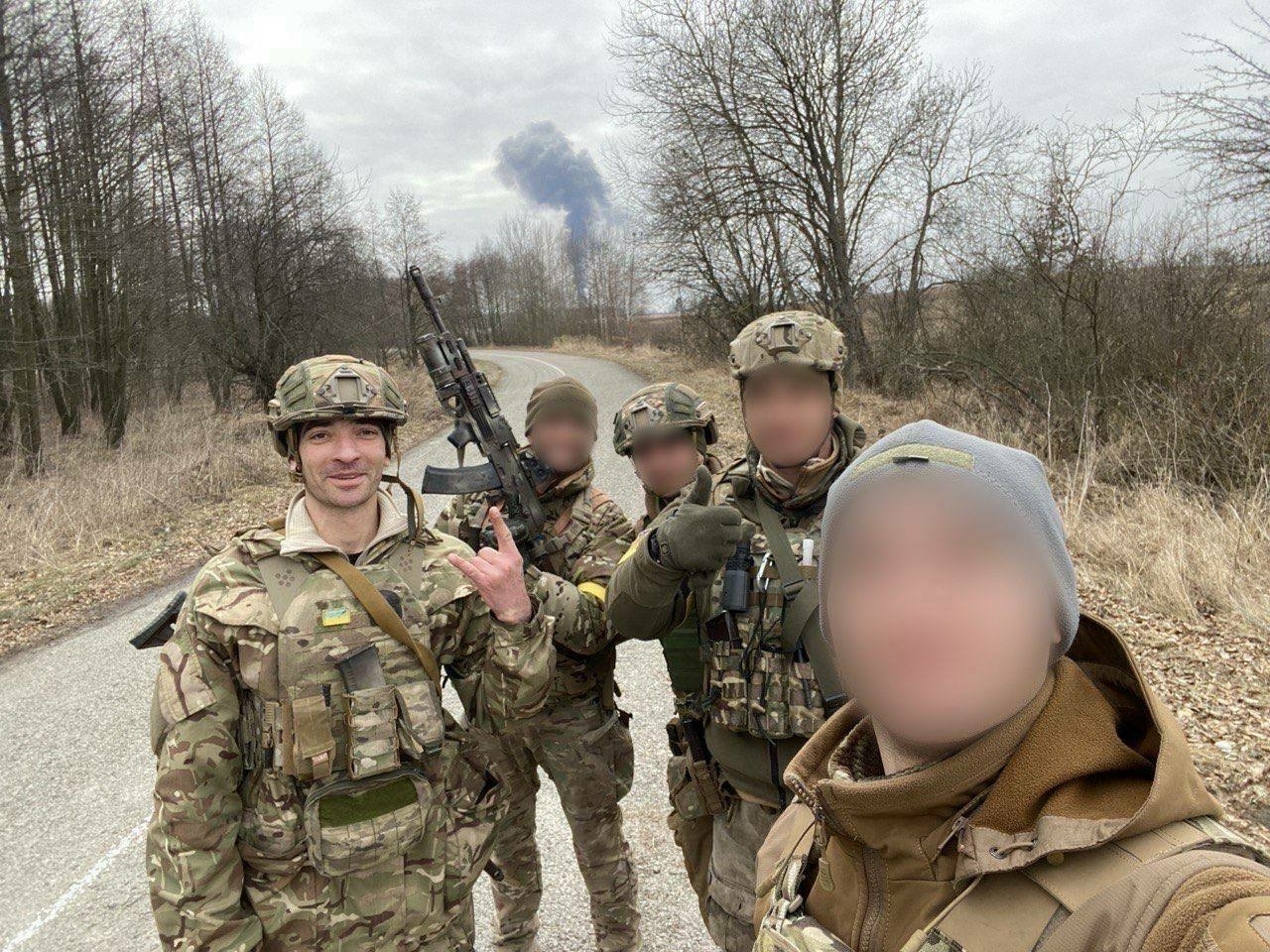
A Russian missile attack killed the commander of the 110th Separate Mechanized Brigade, Serhii Zakharevych, and injured 30 people in Huliaipole in Dnipropetrovsk Oblast on July 1, President Volodymyr Zelensky said in his evening address.
The Russian army struck the Kamianske district, where the village of Huliaipole is located, in the morning on July 1, Governor Serhii Lysak reported.
Huliaipole, with a pre-war population of around 1,200, lies in the western part of Dnipropetrovsk Oblast, roughly 70 kilometers (40 miles) from the front line.
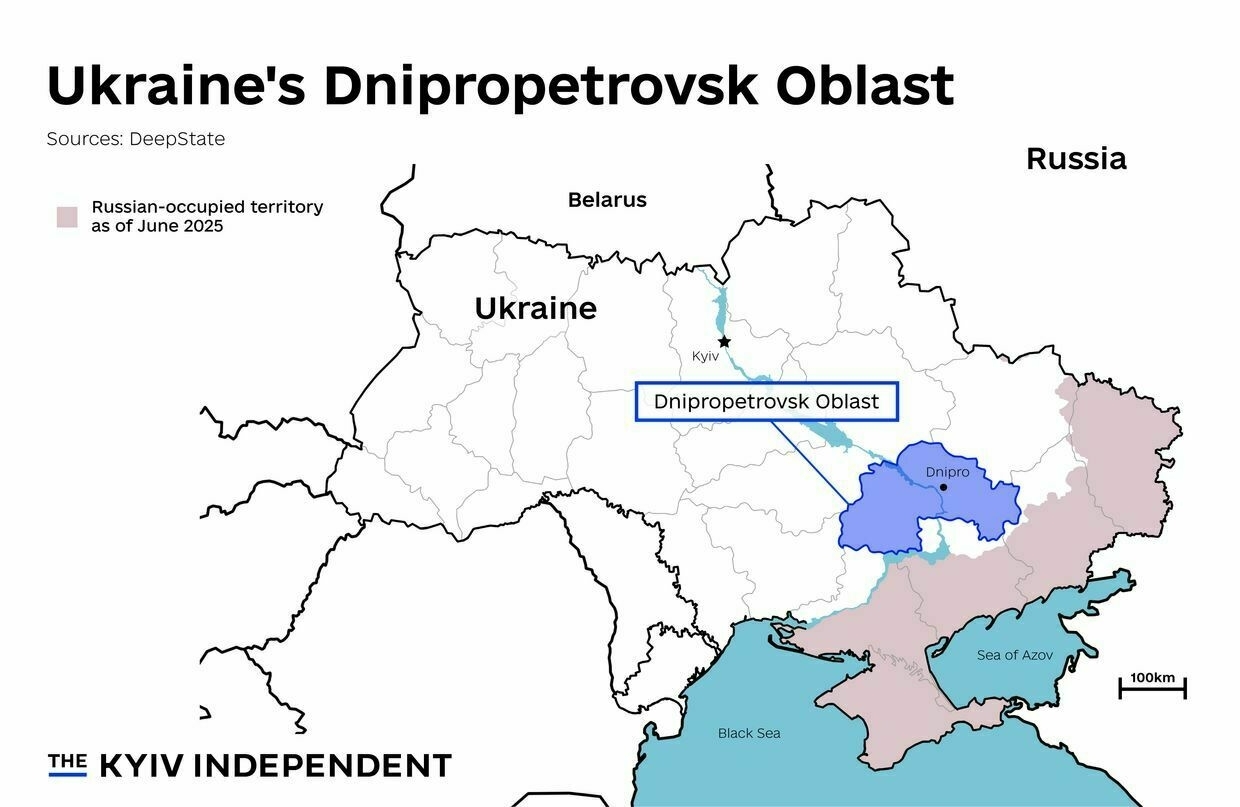
Ukraine’s Dnipropetrovsk Oblast (Nizar al-Rifai/The Kyiv Independent) “We will definitely respond to the Russians for this attack,” Zelensky said, adding that the investigation into the Russian attack is currently underway and he is waiting for a report from the military command.
Zakharevych graduated from the Odesa Institute of the Ground Forces. After graduation, he led a platoon in a reconnaissance company of the 30th Separate Mechanized Brigade and the 1st Tank Brigade.
In February 2025, he was appointed commander of the 110th Separate Mechanized Brigade. Prior to that, he served as deputy commander of the 33rd Mechanized Brigade.
Zakharevych was involved in preparing three qualification courses for the Ukrainian Special Forces and headed the 47th Special Forces detachment. He participated in multiple combat missions at the front.
“Our army has lost another representative of a new generation of Ukrainian officers who grew up in combat and became models of courage and proactive military leadership,” the General Staff’s statement read.
Ukraine’s new interceptor UAVs are starting to knock Russia’s long-range Shahed drones out of the skyRussia’s Shahed drone swarms are pummeling Ukraine on a nightly basis, inflicting ever more death and destruction in cities that had managed to carve out some sense of normalcy amid wartime. Civilian alarm has grown. With traditional air defense stockpiles running low, the government is banking on newly createdThe Kyiv IndependentKollen Post
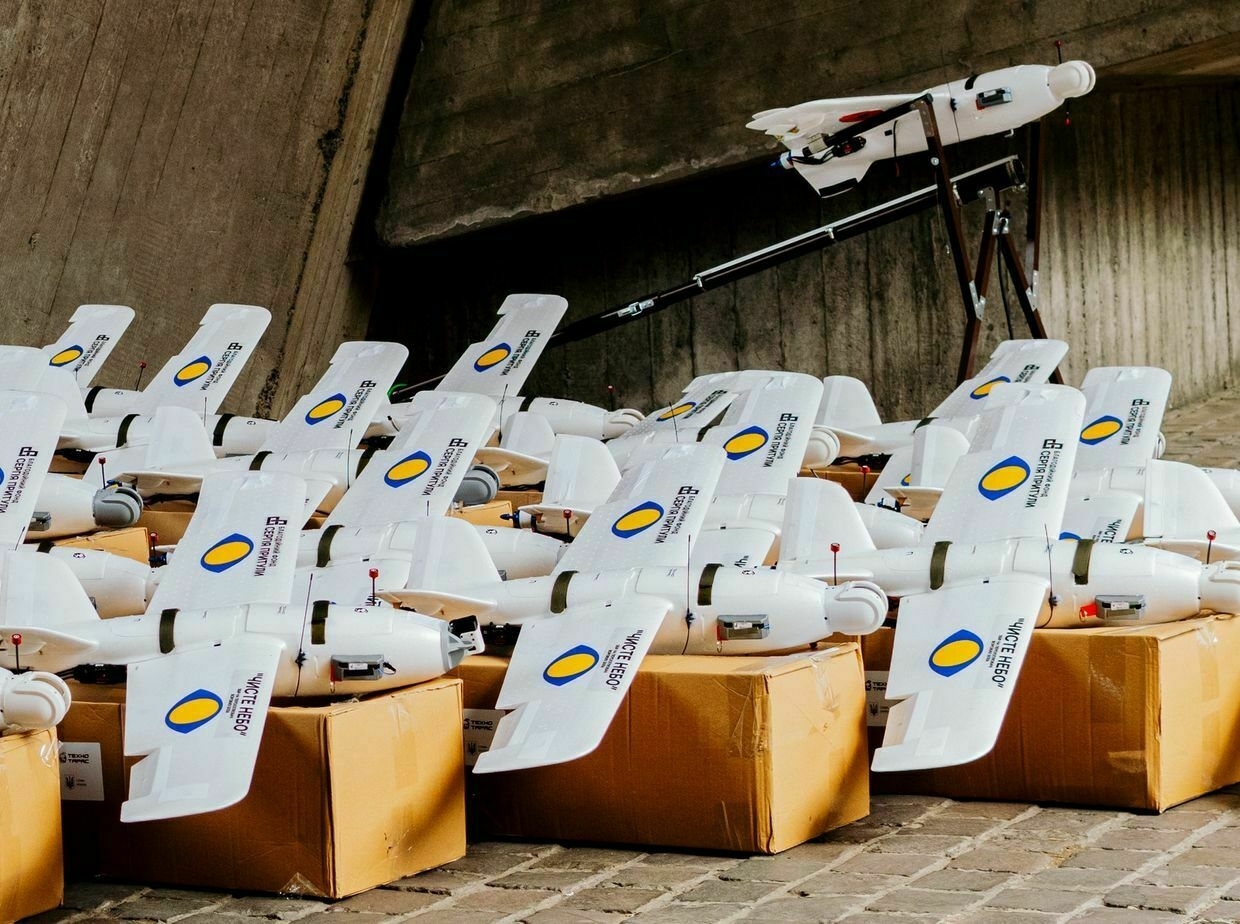
-
Ukraine strikes Russian rear! Crimea is on fire, and allies invest in drones | News Pulse
-
Ukrainian forces hit Russian command post in occupied Donetsk Oblast, General Staff says
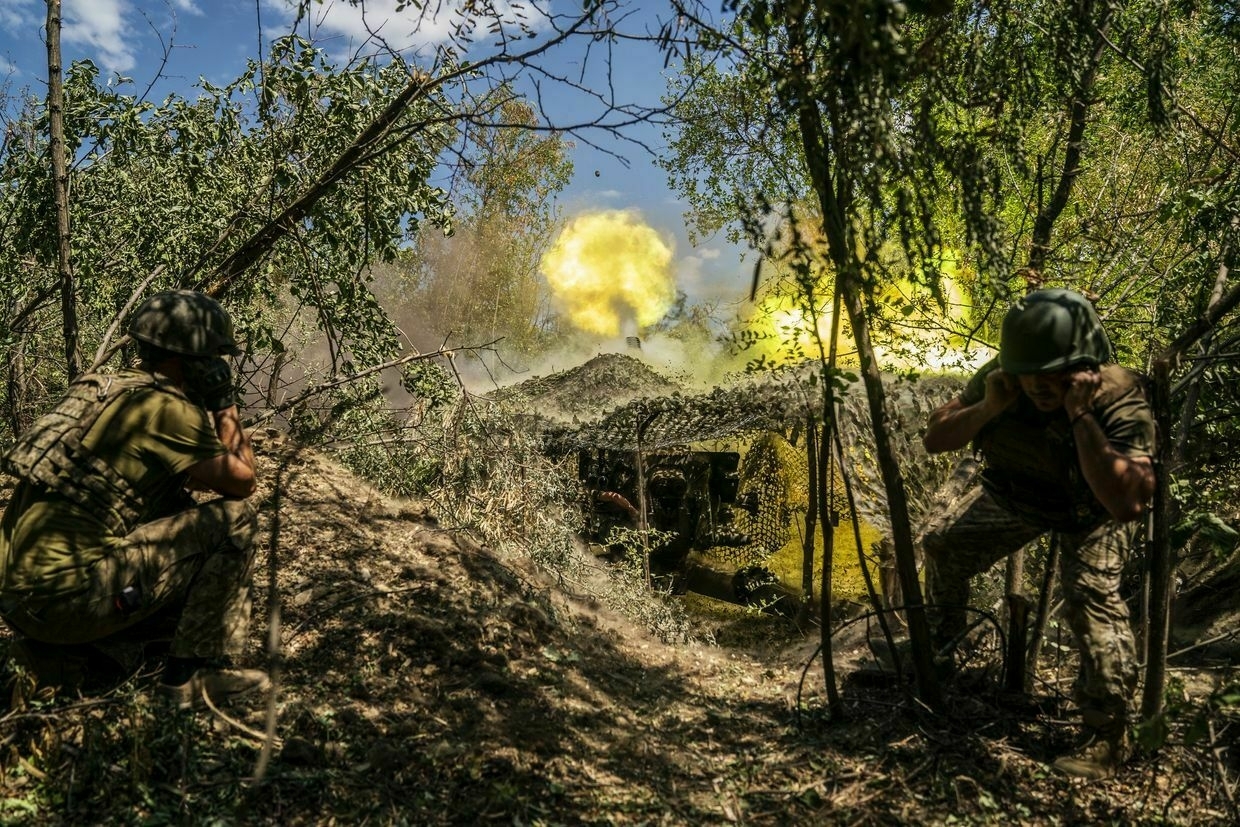
Ukraine struck a command post of the 8th Combined Arms Army of the Russian Armed Forces in the Russian-occupied part of Donetsk Oblast, Ukraine’s General Staff reported on July 1, a day after the attack.
On the evening of June 30, explosions were heard in the Russian-occupied Donetsk, the Russian Telegram channel Shot reported. According to residents, several fires were spotted in different parts of the city.
The attack has significantly hampered Russia’s ability to plan and conduct operations in the Pokrovsk and Toretsk areas of the front line, the General Staff’s statement read.
Russian losses are still being determined.
Ukraine’s military regularly strikes military targets in Russian-occupied territories and deep within Russia in an attempt to diminish Moscow’s fighting power as it continues its war against Ukraine.
Russia has for months focused its offensive efforts on the embattled town of Pokrovsk in Donetsk Oblast and has recently been escalating attempts to break through to neighboring Dnipropetrovsk Oblast, a region that has not yet seen combat.
Ukraine denied reports that Russian forces breached the regional border in May and June.
Operation Spiderweb and Russia’s record drone assault – Ukraine in photos, June 2025For Ukraine, June began with a celebration — not the one the whole country longs for, victory over Moscow — but a celebration of one of the most stunning drone attacks on Russia, known as Operation Spiderweb. On June 1, Ukrainian drones targeted four Russian air bases – two of them thousands ofThe Kyiv IndependentIrynka Hromotska
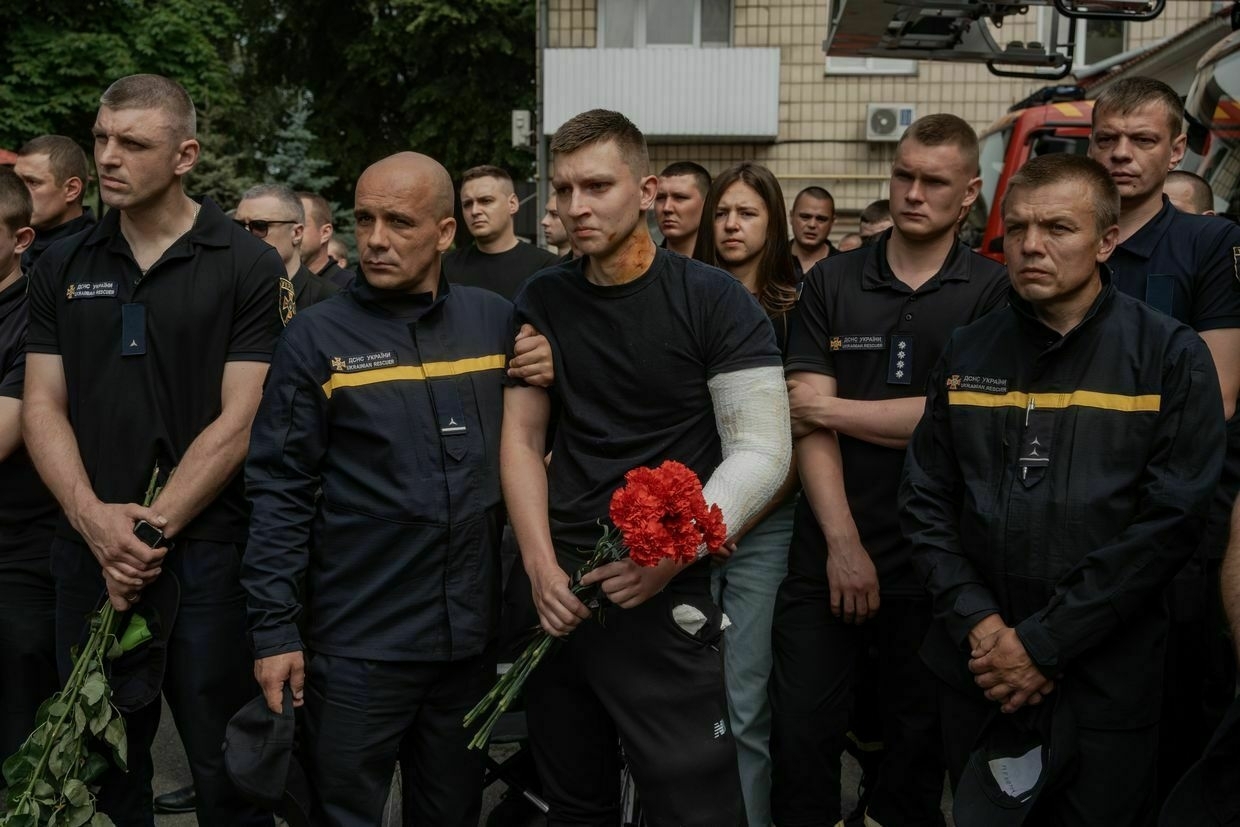
-
Azerbaijan-Russia tensions escalate as Baku accuses Moscow of intentional killing of its citizens
Azerbaijan has leveled grave accusations against Russia, alleging the deliberate murder of its citizens. An autopsy conducted in Baku revealed that the Azerbaijani nationals died due to severe trauma inflicted by multiple blunt force impacts.
In a striking development, Azerbaijan has opened a criminal investigation on counts of "intentional murder" concerning two members of its diaspora in Yekaterinburg, as reported by the General Prosecutor's Office on Tuesday, July 1.
The Azerbaijani authorities have directly accused members of the Russian law enforcement agencies. The investigation stems from charges related to crimes committed outside the country, including "intentional murder by a group of people with particular cruelty, abuse of power, and torture resulting in death."
The incident in question occurred on the morning of June 27 in Yekaterinburg during a joint operation conducted by the Russian National Guard, the Ministry of Internal Affairs, and the Federal Security Service (FSB) in the Sverdlovsk region. Azerbaijani citizens and those of Azerbaijani descent were detained on suspicions of involvement in prior offenses. Among them were the brothers Ziyaddin and Guseyn Safarov, who were found dead.
The Azerbaijani General Prosecutor's Office believes the brothers were beaten to death intentionally. An autopsy in Baku confirmed that severe injuries from "multiple blunt force impacts" were the cause of death.
According to the Azerbaijani forensic specialists, 60-year-old Guseyn Safarov had a broken nose, chest deformity, and hemorrhages in the genital area. An autopsy revealed extensive hemorrhaging, fractured ribs, pleura and lung tears, as well as liver and abdominal damage. For 55-year-old Ziyaddin, hematomas and hemorrhages were found "throughout almost the entire body," including the genital and kidney areas. One rib was missing, and others were partially broken.
Azerbaijani experts concluded that the cause of death for both brothers was post-traumatic and hemorrhagic shock resulting from numerous severe injuries.
The Russian Investigative Committee, meanwhile, argued that one of the Safarov brothers died of heart failure, while the cause of the other's death is still under investigation.
On June 28, Azerbaijan's Foreign Ministry issued a statement concerning the events in Yekaterinburg that took place the previous day. The Azerbaijani officials expressed serious concern over the FSB-led operation on June 27 in Azerbaijani-populated districts, during which over 50 Azerbaijanis were held.
On Saturday, Azerbaijan's Foreign Ministry summoned Russia's chargé d'affaires in Baku, Petr Volokhov, demanding a thorough investigation and accountability for those responsible.
Maria Zakharova, the spokesperson for Russia's Ministry of Foreign Affairs, did not comment on the deaths of the Azerbaijanis but stated that the raids are part of a probe into earlier crimes.
In response, Azerbaijan canceled all cultural events involving Russia, an action met with regret by the Kremlin.
Tensions between Baku and Moscow have been simmering for several months. In May, Azerbaijan's President Ilham Aliyev declined an invitation to Moscow's May 9 Victory Day parade, opting instead to host Ukrainian Foreign Minister Andriy Sybiha in Baku the same month.
The bilateral relationship further strained in December 2024 after a crash involving an Azerbaijani aircraft in Kazakhstan that resulted in 38 fatalities. Aliyev claimed the plane was shot down over Russia and accused the Kremlin of attempting to cover up the incident. President Vladimir Putin expressed sorrow, describing the event as a "tragic accident," yet stopped short of acknowledging Russia's responsibility.
-
Ukrainian missile strike on Donetsk kills Russian 8th Army commander
Colonel Ruslan Goryachkin, the commander of Russia's 8th Combined Arms Army, was killed in a Ukrainian missile strike using Storm Shadow missiles in Donetsk.
The precise hit on the Russian unit's headquarters occurred on the evening of June 30. The death of the high-ranking officer was reported by Ukrainian soldier and blogger Anatolii Shtefan (Shtirlitz).
Storm Shadow cruise missiles were launched toward Crimea, Donetsk, and Russia's Rostov region. The headquarters of the 8th Combined Arms Army, located in the Donetsk Institute of Non-Ferrous Metals building, near the local shopping mall, came under attack.
Reports from Abkhaz public forums confirm that Goryachkin died on June 30 while "performing his duty" in a combat zone. It is known that the officer was born and raised in Sukhumi, Abkhazia.
Goryachkin dedicated his life to the Russian army from a young age, rising through the ranks from cadet to army commander.
On the night of June 29, the Russian military carried out a massive attack on Ukraine. On that day, Russian forces launched 537 drones and missiles.
Additionally, in the early hours of July 1, Russian forces targeted Zaporizhzhia with Shaheds kamikaze drones, causing damage to private homes and businesses.
-
US sanctions Russian IT company Aeza Group over ransomware operations
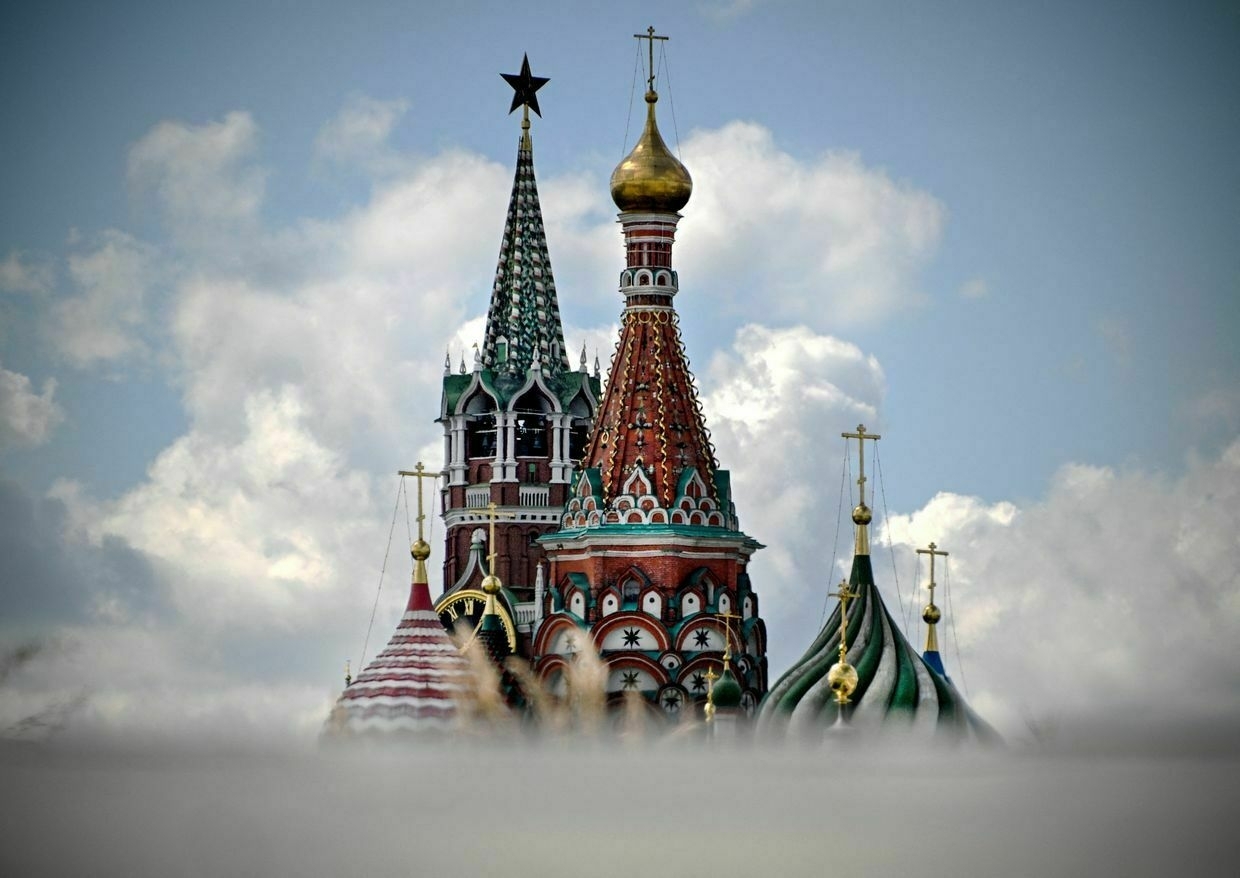
The U.S. Treasury Department’s Office of Foreign Assets Control (OFAC) has imposed sanctions on the Russian IT company Aeza Group for hosting infostealers and ransomware operations, according to a press release published on July 1.
Restrictions were imposed on two subsidiaries and four members of the Aeza Group’s management as well, the statement read.
The U.S. Treasury Department characterized Aeza as a “bulletproof hosting service” that provided services to the Meduza and Lumma infostealers, as well as to the BianLian and RedLine ransomware groups.
Aeza Group also hosted the Russian-language darknet marketplace for illegal drugs, BlackSprut.
According to the U.S. Treasury Department, Aeza Group sells access to specialized servers that help cybercriminals avoid detection and resist attempts by law enforcement agencies to suppress their criminal activities.
Sanctions against the company involve blocking all assets of the named individuals located in the U.S. Any legal entities that are owned, directly or indirectly, individually or in the aggregate, by 50% or more by one or more of the mentioned individuals are also blocked.
Violation of the U.S. sanctions may result in civil or criminal penalties.
The news comes as Ukraine continues to call on the U.S. to strengthen sanctions against Russia. Despite Russia’s refusal to accept the ceasefire proposal and its army’s ongoing advance across Ukrainian territory, the Trump administration has not yet imposed new restrictions.
Meanwhile, Senators Lindsey Graham (R) and Richard Blumenthal (D) introduced a bill to impose a 500% tariff on imports from countries that continue to buy Russian oil and raw materials.
The legislation currently has broad bipartisan support, with 82 out of 100 U.S. senators backing it. U.S. House Speaker Mike Johnson also voiced his support for the bill.
Ukraine’s new interceptor UAVs are starting to knock Russia’s long-range Shahed drones out of the skyRussia’s Shahed drone swarms are pummeling Ukraine on a nightly basis, inflicting ever more death and destruction in cities that had managed to carve out some sense of normalcy amid wartime. Civilian alarm has grown. With traditional air defense stockpiles running low, the government is banking on newly createdThe Kyiv IndependentKollen Post
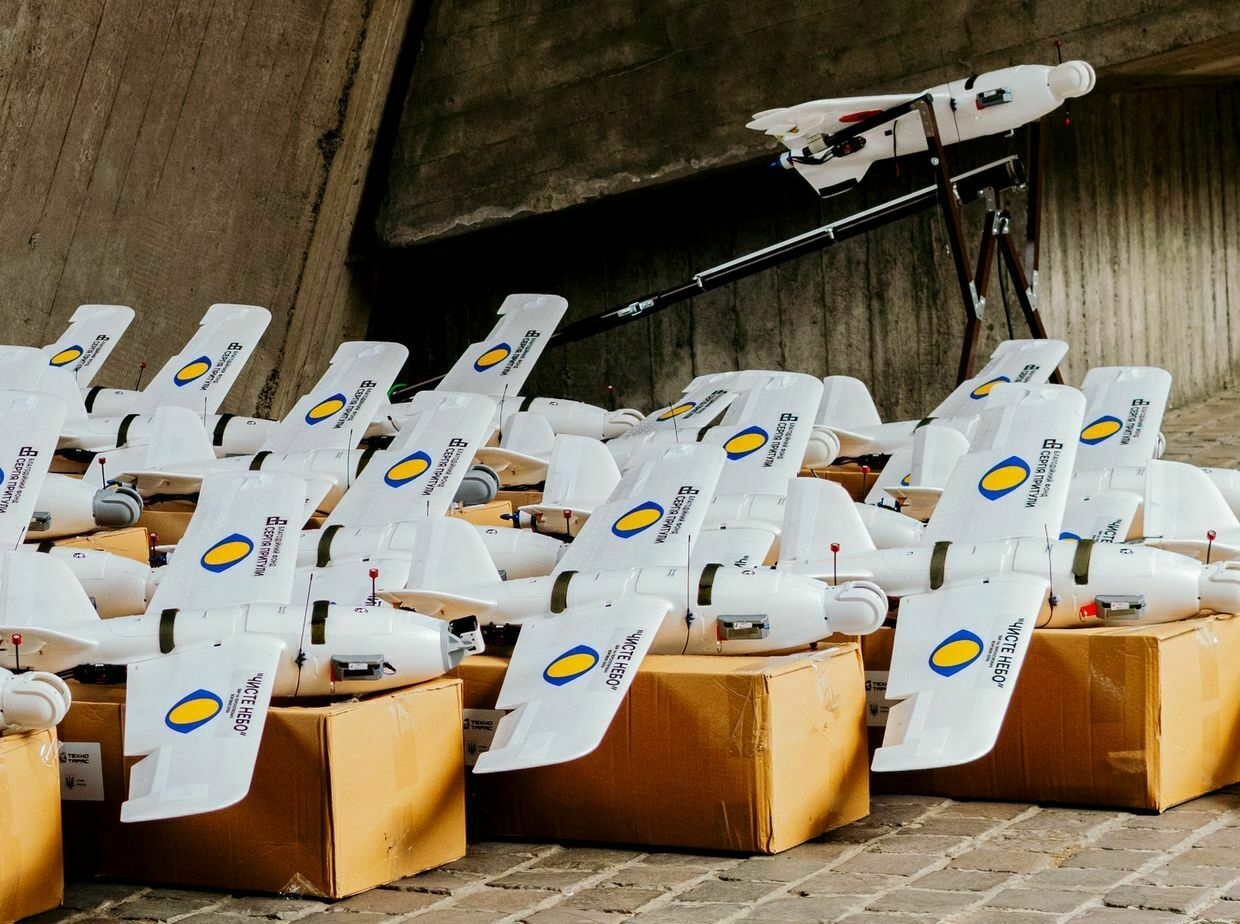
-
Putin, Macron hold first call since 2022, discuss wars in Ukraine, Middle East
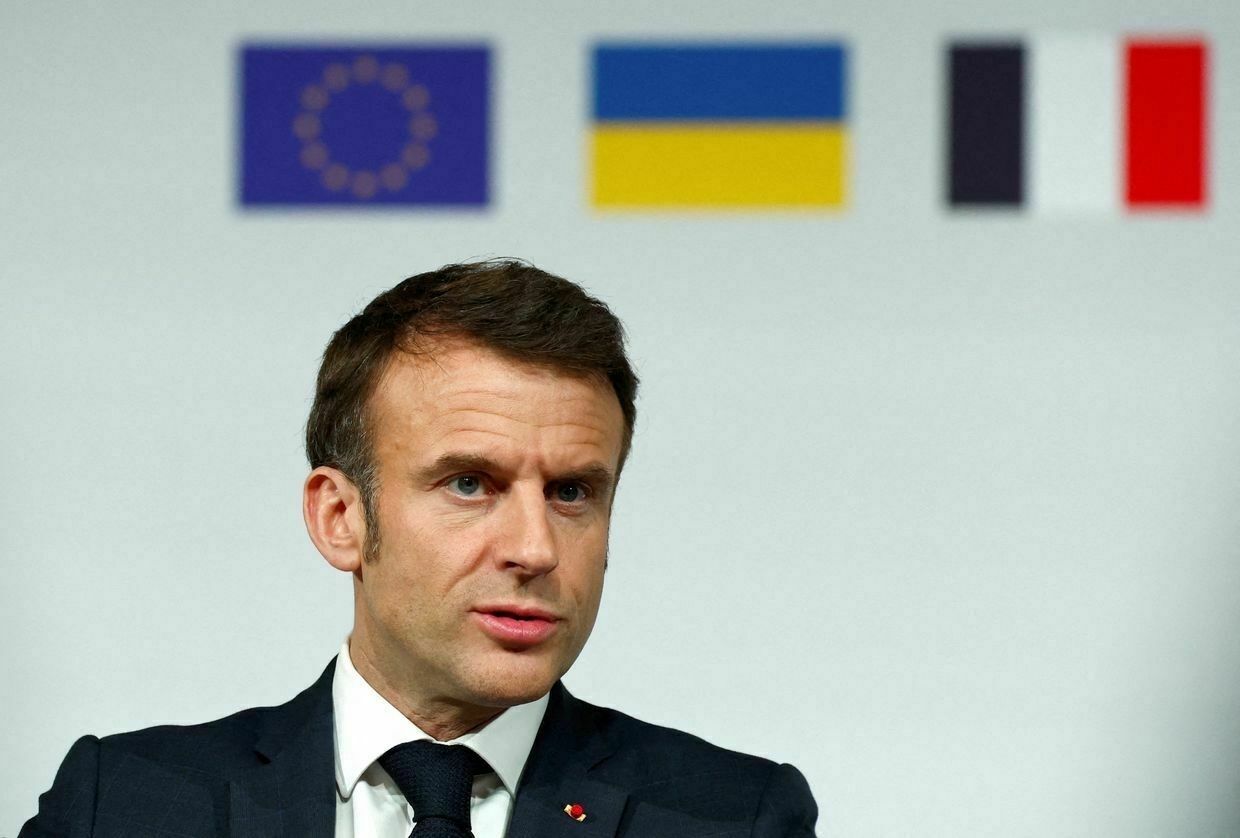
Editor’s note: This story is being updated.
French President Emmanuel Macron and his Russian counterpart Vladimir Putin held a call on July 1 for the first time since 2022, discussing Russia’s war against Ukraine and the conflict in the Middle East, the Kremlin’s press service reported.
The conversation between the two leaders took place as the Russian army continues to advance along the front line, trying to gain a foothold in Sumy Oblast and enter Dnipropetrovsk Oblast.
Moscow has repeatedly rejected the U.S.-backed ceasefire proposal, stalling peace talks with Ukraine.
Russia-Iran alliance wavers as Tehran suffers major blowsTehran, Russia’s main ally in the Middle East, has been dealt a heavy blow as Israel dismantled its network of proxies and then struck targets in Iran. The recent Iranian-Israeli war, which ended with a ceasefire on June 24, showed that the regional balance of power has shifted in Israel’s favor. This could have a major impact on Russian-Iranian relations as Moscow will have to recalibrate its approach to the region. Russian-Iranian cooperation is likely to continue but Iran’s ability to help The Kyiv IndependentOleg Sukhov
The Kyiv IndependentOleg Sukhov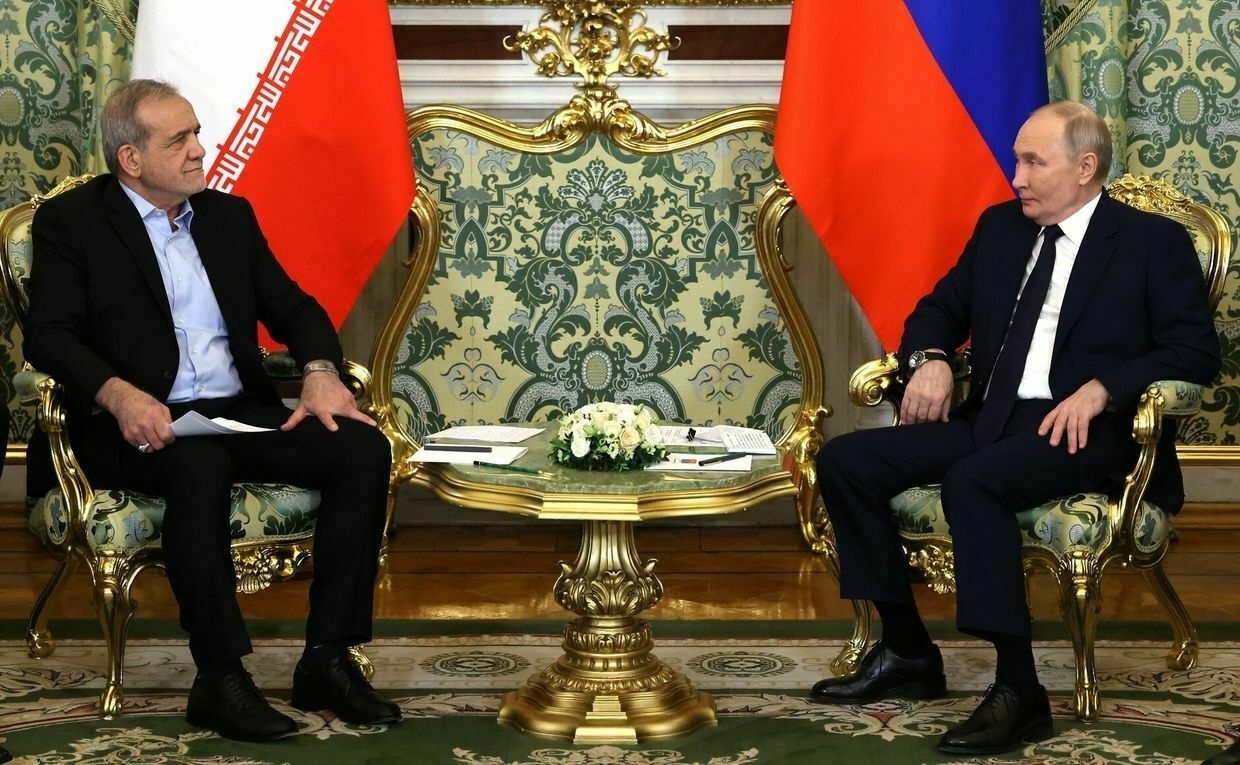
-
Ukraine's power exports surge 2.5 times, recovering to pre-Russian attack levels
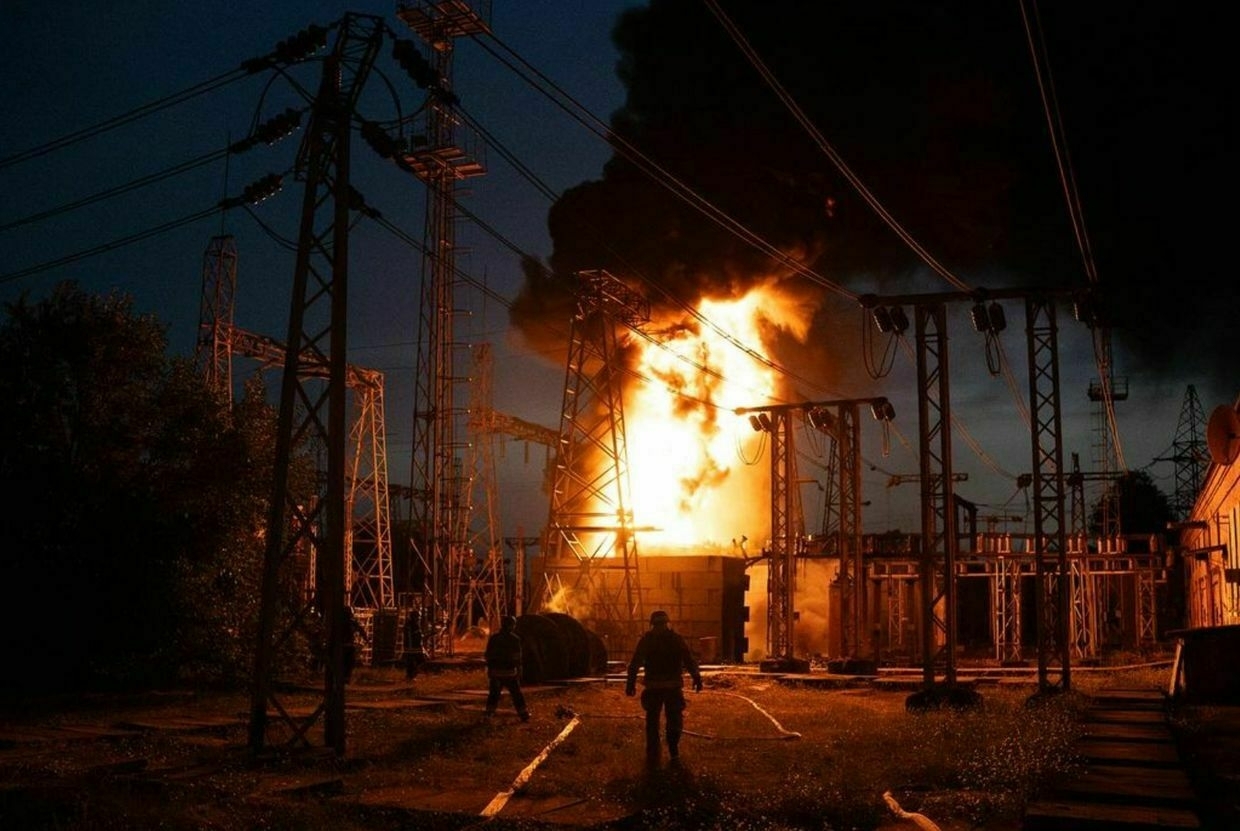
Ukraine boosted electricity exports by 150% in June 2025 compared to the previous month, reaching over 237,000 megawatt-hours (MWh), according to consulting firm ExPro Electricity.
Current export volumes have returned to autumn 2022 levels, before Russia launched systematic attacks against Ukraine’s energy infrastructure that caused massive blackouts across the country.
This marks Ukraine’s return to exporting more electricity than it imports for the first time since October 2023, ExPro analysis reports.
Electricity cannot be stored in large volumes for long periods, so it can be exported during certain hours when there is surplus in Ukraine’s energy system, and imported during deficit hours.
Hungary imported the majority of Ukrainian exports, with shipments jumping from 34,000 to 122,000 MWh in a single month.
The recovery represents a dramatic turnaround from June 2024, when Ukraine had no exports at all and imported 858,000 MWh, four times more than in June 2025.
Russia continues to target Ukraine’s energy infrastructure, with the latest strike hitting a critical energy facility in Kherson Oblast on June 27 that caused widespread blackouts across multiple communities.
Governor Oleksandr Prokudin warned residents to prepare for prolonged outages as power engineers work to restore electricity, saying “Russia decided to plunge Kherson Oblast into darkness."
In February 2025, Emergency energy power shutdowns were introduced in eight Ukrainian oblasts due to Russian attacks on the country’s energy system.
‘With surgical precision’ — Ukrainian drones strike Russian plant 1,300 km away, SBU source saysThe SBU said its long-range drones targeted the Kupol plant in Russia’s Udmurt Republic on the morning of July 1, resulting in at least two confirmed strikes and a fire at the site.The Kyiv IndependentAnna Fratsyvir
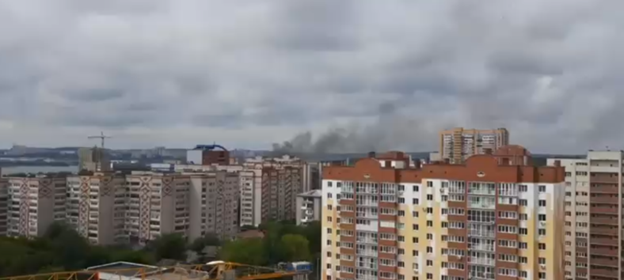
-
Want to invest in Ukrainian startups from the US? This platform promises to be the bridge

Hans Braunfisch wants Americans to invest in Ukrainian startups, but there’s a problem: there’s no clear path for individual investors to put money into the more than 26,000 Ukrainian startups out there.
The former PwC consultant plans to change that with Pravo Venture, a platform streamlining foreign investment for Ukrainian startups. Think of it like a meeting point for Ukrainian companies and U.S. investors accredited by the Securities and Exchange Commission who want to support the country with capital instead of aid.
While co-heading PwC’s Ukraine Taskforce, Braunfisch attempted to persuade clients to invest in Ukraine’s entrepreneurs to help its economic recovery. But he couldn’t convince the big institutional investors to go for it.
Searching for options for individual investors, Braunfisch also couldn’t find any Ukrainian companies listed on U.S. stock exchanges. This sparked his idea for an online investment platform to help local entrepreneurs and communities, with Ukraine as an equal Western partner.
“We want to shift the narrative that Ukraine is a short-term charity case to Ukraine is an opportunity for a much longer-term business and collaborative partnership,” Braunfisch told the Kyiv Independent.
He researched and spoke to Ukrainians over 18 months about ways investors could help, eventually founding Pravo alongside Ukrainian-American Alex Inshin and Hamburg-based Vlad Sutea.
In June, the small team launched Pravo — which means “rights” in Ukrainian — on a tight budget of under $200,000. Currently, the platform lists two startups: Mosqitter, which makes non-toxic mosquito repellents, and Promin Aerospace, a rocket producer.

Showcase of Mosqitter - a non-toxic mosquito repellent. (Mosqitter) Ukraine’s startup ecosystem has tripled in five years, even during Russia’s full-scale invasion, to become the second most valuable in Central and Eastern Europe at $28 billion. IT startups make up 4.4% of the country’s gross domestic product, with Ukrainian-origin unicorns like artificial intelligence writing tool Grammarly and software development platform Gitlab used globally.
Despite a partial rebound from a steep 30% economic decline in 2022, foreign investment in Ukraine remains sluggish. Ongoing war risks and images of destroyed cities have deterred foreign investors, while levels of domestic capital is either limited or redirected to military and defense needs.
“We get the tragic images of aerial attacks, but we typically don’t see the innovators building something in Dnipro or Kyiv or Lviv — those people are still there, but they’re not getting the recognition they deserve,” Braunfisch said.
Ukrainian innovation, American capitalPravo is currently only open to U.S. investors who are SEC-accredited, meaning they make at least $200,000 annually or have a net worth of $1 million. Pravo’s target is Ukraine-friendly American investors looking to invest smaller sums, like $5,000 or $15,000, with a starting goal of 1,000 people on the platform in the first 12-18 months.
“Pravo allows more individual investors to follow through on their interest in Ukraine, while directly investing in community-level entrepreneurs,” said Mark Simakovsky, former USAID deputy assistant administrator for Europe and Eurasia and founding partner of Heartland Global Advisors, a strategic advisory firm based in Washington, DC.
On the Ukrainian side, Braunfisch partnered with Eo Business Incubators, a Ukraine-based mentorship program for startups led by an international team. For now, Pravo will only hire graduates of the incubator, many of whom go on to the prestigious Techstars accelerator program, due to Eo Incubator’s Western approach and standards.
“Startups are starved for cash, especially Ukrainian startups, and they need that cash to reinvest in their business, build their products, and pay their employees in Ukraine.”
With Ukraine producing 150 investable startups annually, Braunfisch hopes to add two to three companies monthly. Quality is more important than quantity, he says.
For Mosqitter founders Anastasiia Romanova and Olga Diachuk, the incubator's mentors helped them understand and meet Western investor expectations. They hope Pravo will help spotlight Mosqitter and increase access to U.S. investors and new partnerships.
"There is the opportunity to tell a broader audience of U.S. investors about Mosqitter, about our product, and potentially raise funds," Romanova told the Kyiv Independent.
"There's nothing similar on the market," Diachuk added.
Companies need to tick a checklist before joining Pravo. Research and development needs to be in Ukraine, while the company should be legally domiciled in the U.S. so fundraising can be in dollars into a U.S. bank account, which helps mitigate risks, said Braunfisch.
Investing in wartime Ukraine requires ‘nuanced understanding of risk’ but worth it, says global trade expertWhen John Denton first visited Ukraine weeks into Russia’s full-scale invasion in 2022, he knew that for the country to survive, businesses needed to stay alive. Denton is the secretary general of the International Chamber of Commerce, the world’s largest business organization. Active in 170 countries, the organizationThe Kyiv IndependentDominic Culverwell
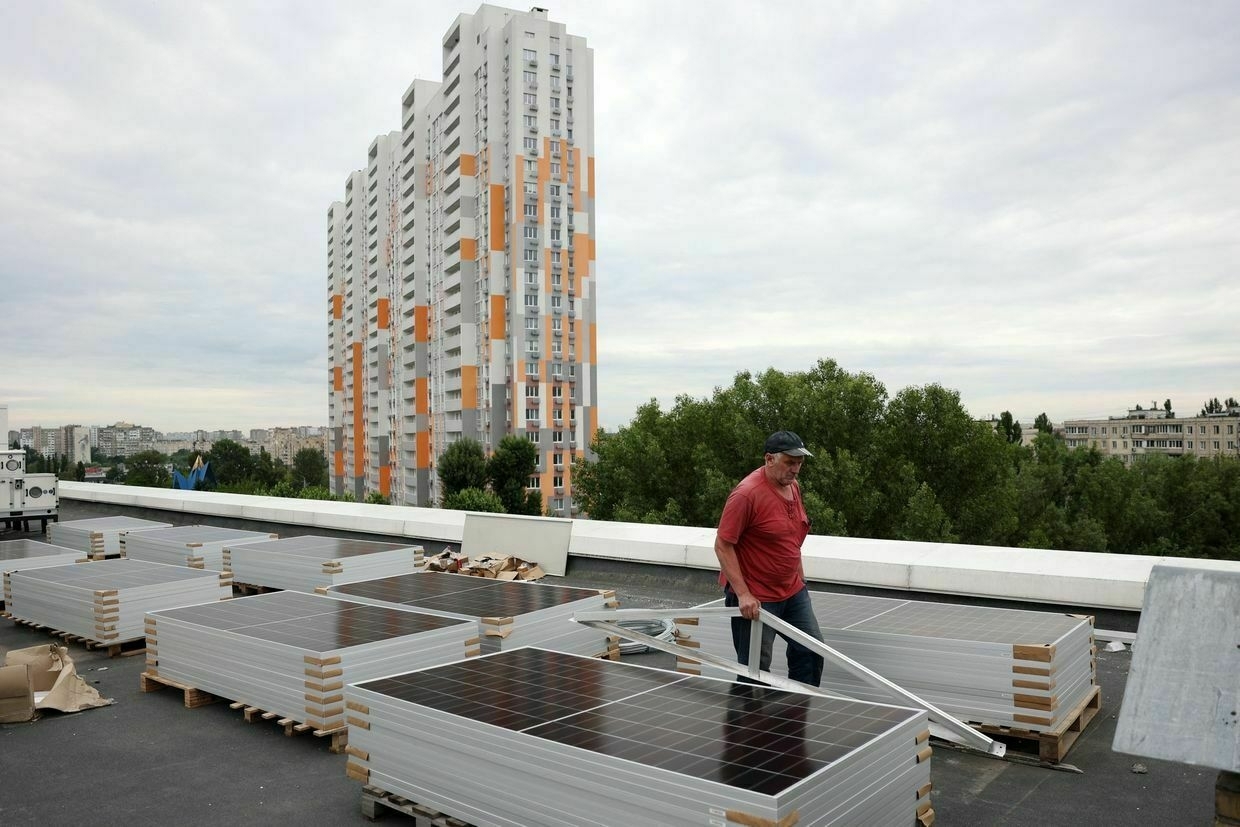
Challenging environmentConvincing investors to put money into Ukraine during the war is no easy feat. Braunfisch says trust is key to winning people over. Working with reputable partners like Eo Incubator and Dealmaker, which handles the whole investment process, helps build that trust, he said.
The team is also ensuring that startups get most of the cash. Instead of charging them a cash fee, Pravo takes a 1% passive equity stake, which also incentives Pravo to make sure startups do well. But even if a startup fails, Pravo would still have accomplished its goal of getting money to Ukrainians, Braunfisch said.
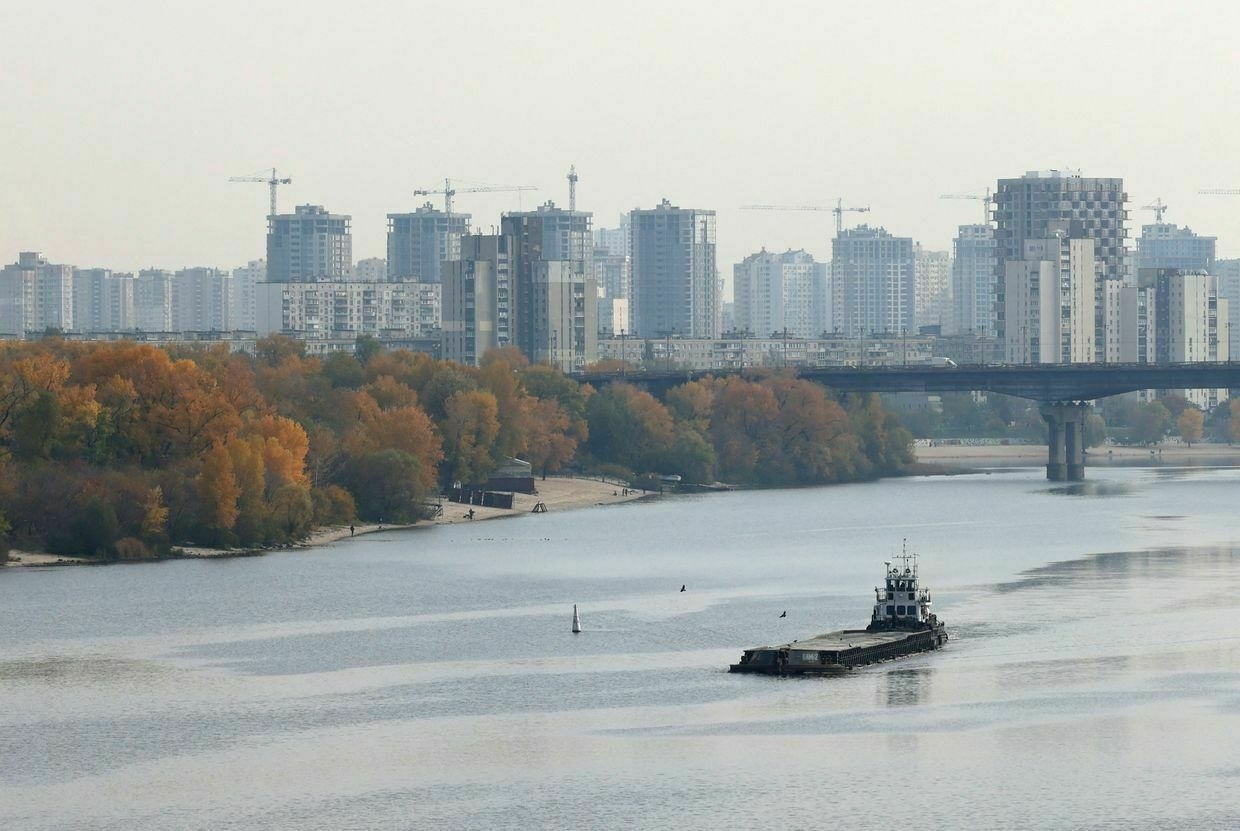
A cargo ship sails on the Dnipro River on a warm sunny day in Kyiv, Ukraine, on Oct. 28, 2024, amid the Russian invasion. (Anatolii Stepanov / AFP via Getty Images) Unlike some crowdfunding websites, which can charge as much as 11% of every dollar invested, Dealmaker, which handles all financial transfers, charges a one-time 1% transaction fee. Pravo doesn’t take a cut.
"We understand that startups are starved for cash, especially Ukrainian startups, and they need that cash to reinvest in their business, build their products, and pay their employees in Ukraine," Braunfisch said.
Pravo is also working in a challenging environment wherein risk appetite for early-stage investments has dropped in recent years. This is a problem as Ukraine's startup culture is at a much earlier stage compared to the U.S. or Western Europe and requires risk-taking to develop "blockbuster" hits like Grammarly.
While this means it will be harder for Pravo to convince venture capital firms or smaller family offices to invest, it opens opportunities for individual investors, said Braunfisch. With fewer investors going after early-stage startups, those willing to take the risk and help Ukraine will see better returns.
"Ultimately, we have an advantage because there is no other way for my friends in Arkansas who want to support Ukraine to do so, aside from giving to charities and paying taxes," he added.
Note from the author:
Hi, it’s Dominic, thank you for reading this story. One of the things I love about my job is getting to meet and visit Ukrainian startups. There is so much creativity and ambition here that it makes me optimistic for Ukraine's future. Despite the war, Ukraine's entrepreneurs refuse to stop. To help us keep bringing you stories like this, please consider joining our community for as little as a cup of coffee a month.
‘A blueprint’ — foreign investors, Ukrainian hotel create jobs for war displacedIn a luxurious resort complex north of Kyiv, 12 women are retraining to enter the hospitality sector in a new school that will kickstart a fresh life for Ukraine’s internally displaced people (IDPs). The women, mostly from Ukraine’s occupied territories, are learning to be housekeepers in the first programThe Kyiv IndependentDominic Culverwell
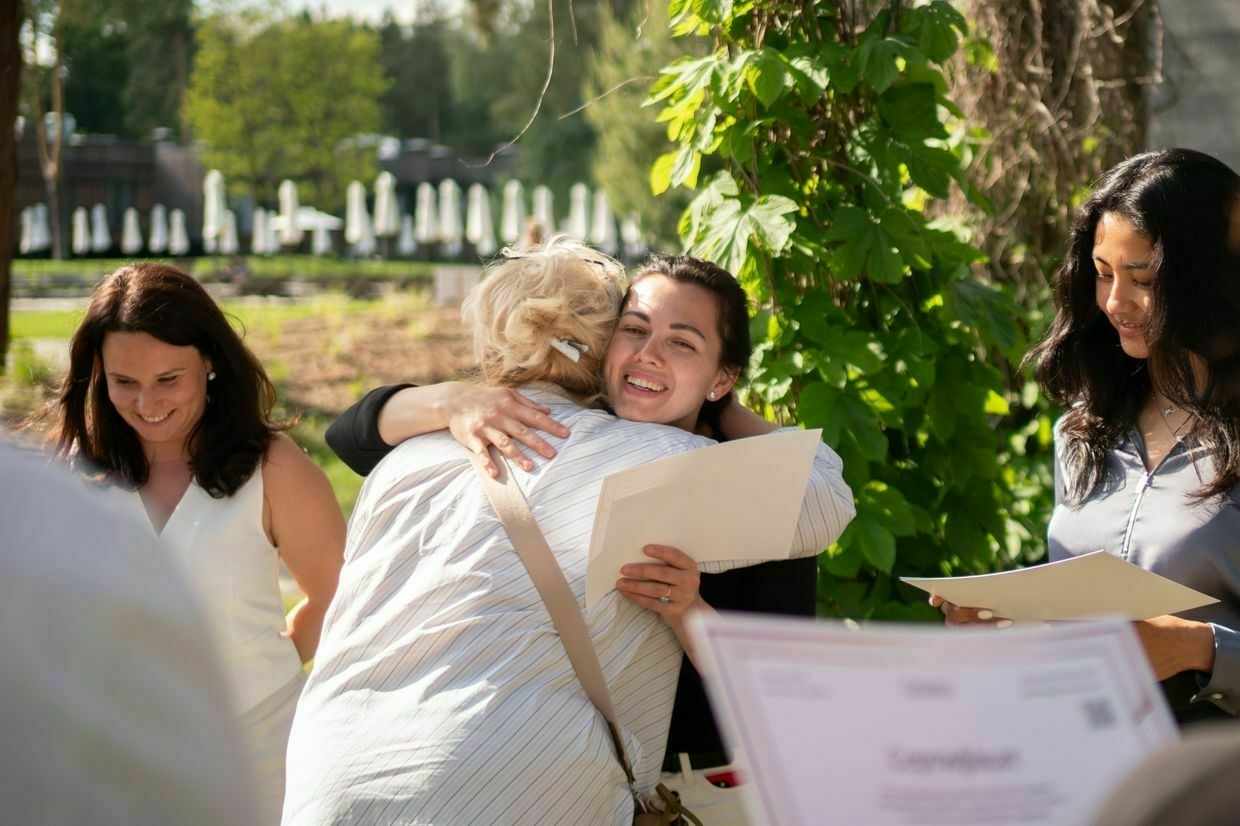 Subscribe to the NewsletterUkraine Business Roundup
Subscribe to the NewsletterUkraine Business Roundup<span data-sanitized-id="ukraine-business-roundup-info" data-sanitized-class="ukraineBusinessRoundup__info"></span> <button data-sanitized-id="ukraine-business-roundup-subscribe-btn" data-sanitized-class="ukraineBusinessRoundup__form_button"> <span data-sanitized-class="ukraineBusinessRoundup__form_label">Subscribe</span> </button> </div>Playing the long game: why does Putin need a simulation of peace talks with Ukraine? #shorts
Russia hits evacuation vehicle in Donetsk Oblast, killing civilian
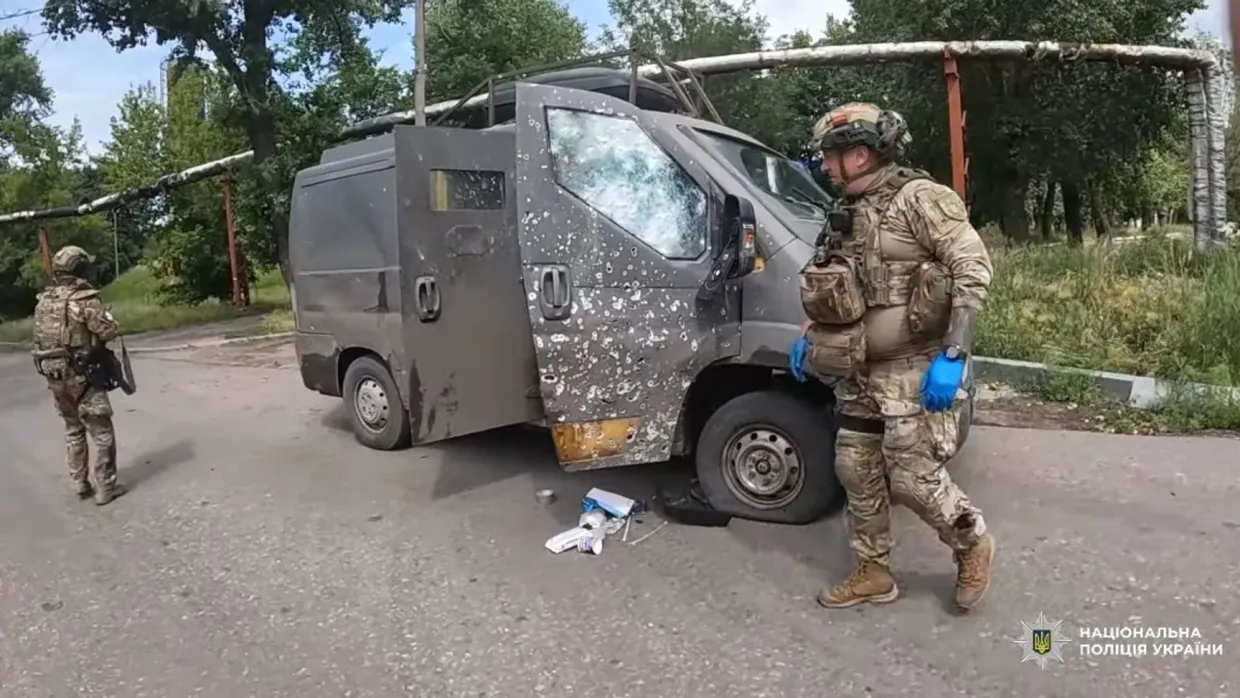
The Russian army attacked an evacuation vehicle carrying three wounded civilians, which resulted in the death of one of them, Ukraine’s National Police reported on July 1.
Russia has for months focused its offensive efforts on the embattled town of Pokrovsk in Donetsk Oblast and has recently been escalating attempts to break through to neighboring Dnipropetrovsk Oblast, a region that has not yet seen combat.
According to the police, Russian forces attacked the evacuation vehicles provided by chaplains three times: at the entrance to the city, in the city center, and during the evacuation of civilians from Pokrovsk. The police called Russia’s actions “targeted hunting."
The police picked up one injured person in the city, and the other two — on the way to the hospital. In the meantime, the Russian army hit the car with a Molniya drone. As a result of the attack, one of the police officers was injured.
As the evacuation vehicle came under fire, one of the injured could not be brought to the hospital in time and died of blood loss.
“We called for reinforcements and sent the injured civilian with them, hoping for a miracle. But it did not happen, Russia took another life,” Hennadii Yudin, head of the “White Angel” police unit, said.
Another injured man, who was evacuated with a shrapnel wound, is undergoing treatment, the police said.
Commander-in-Chief Oleksandr Syrskyi reported on June 27 that Russia has amassed “about 111,000 personnel” in the Pokrovsk sector, but Ukrainian forces are holding the line.
Syrskyi’s statement came as Russian President Vladimir Putin claimed Moscow is “ready” for a third round of peace talks with Kyiv.
Russia’s so-called “peace memorandum” demands that Ukraine recognize Russia’s annexation of Crimea, as well as Kherson, Donetsk, Zaporizhzhia, and Luhansk oblasts — none of which are fully under Moscow’s control.
As Russia inches closer to Dnipropetrovsk Oblast, new Ukrainian region might soon be at warMoscow said its troops had crossed into Dnipropetrovsk Oblast and were conducting offensive operations in the region, a claim Kyiv quickly denied as “Russian disinformation.” Russian troops have been pushing toward Dnipropetrovsk Oblast for months, trying to solidify the southern flank to capture Pokrovsk and the remaining parts of theThe Kyiv IndependentAsami Terajima
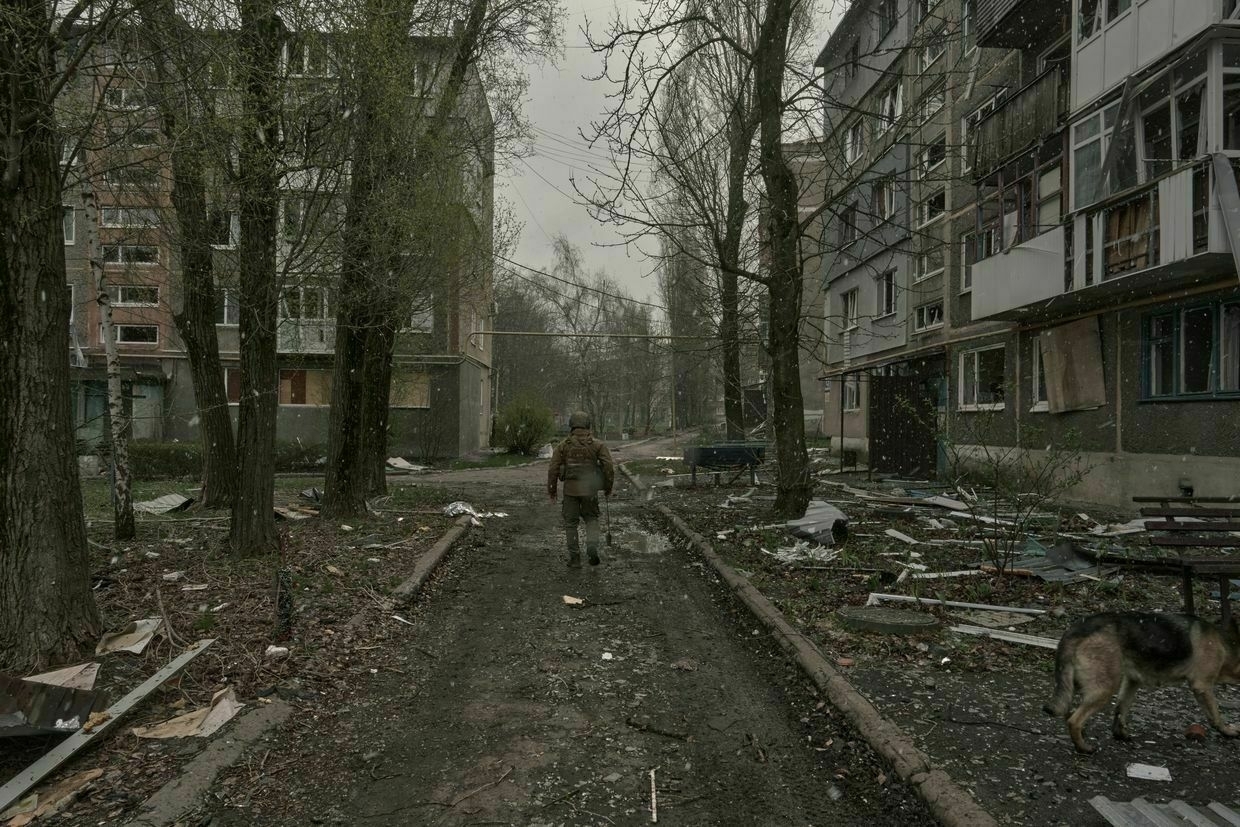
Ukraine’s new interceptor UAVs are starting to knock Russia’s long-range Shahed drones out of the sky

Russia’s Shahed drone swarms are pummeling Ukraine on a nightly basis, inflicting ever more death and destruction in cities that had managed to carve out some sense of normalcy amid wartime.
Civilian alarm has grown. With traditional air defense stockpiles running low, the government is banking on newly created “interceptor-drones” to restore a baseline of public safety.
“Ukraine is already using interceptors to shoot down Shaheds and is expanding their production,” President Volodymyr Zelensky’s office wrote on June 21.
As with much of Ukraine’s unmanned aerial vehicle development, a fleet of nascent interceptor drones — which shoot other drones out of the sky — is filling a gap in more traditional anti-air defenses, as the U.S. cuts its weapons aid and Russia expands its drone fleet.
“If at the start we had some kind of SAMs, missiles, Javelins, air-defense systems — including enough rockets for them — now they’ve started to run out, and we’re running a deficit,” said Bohdan Danyliv, who heads the military department of the Serhiy Prytula Fund, a Ukrainian charity that also helps to finance military developments, including the new interceptor drones.
The Ukrainian government’s defense tech apparatus publicly established anti-Shahed defense as a top priority as of the beginning of 2025. But only in recent months, with radically expanding attacks, has the government begun hastening to get the new systems working. Officials are now calling these anti-Shahed drones a top concern.
“We need to make it so the Russians cry bitter tears, so they’re afraid to take flight.”
“Assignment number one: The cultivation and scaling of means that already work effectively. Most of all: increasing the number of unmanned aerial vehicle interceptors,” Ukraine’s Air Force wrote in a June 14 Telegram post.
Some models of the new generation of interceptor drones have played a role at the front for at least a year, largely shooting down Russian reconnaissance drones like Merlins or Zalas that loop across much of the front line. But Shahed defense has proved a bigger issue.
“A Shahed is much faster, by a factor of two, and you don’t just need to catch up to it, you need to overtake it,” said Danyliv. “A Zala or an Orlan does recon, and so it circles. A Shahed flies straight, and your radar has a range of 25-30 kilometers, which a Shahed passes through in just a couple of minutes.”
Several of the new projects have appeared across various social media channels in the past month. One, the Sting, is an interceptor drone that has accomplished what seems to be the first filmed destruction of a Russian long-range Shahed-type drone in what the Sternenko Community Fund called “Another Shahed shot down by an FPV from the community, in collaboration with Wild Hornets.”
“We cannot name producers, out of security considerations,“ a representative for the Sternenko Community Fund wrote in a statement to the Kyiv Independent. “However, recently the situation has been changing, and we are already seeing positive movement in this area.”
“Before this, our mobile-fire groups and helicopters fought the Shaheds relatively well,” said a representative for Wild Hornets, the producer and charity fund that makes the Sting, who asked not to be named out of safety concerns.
But after recent months saw a radical uptick in the number of Shaheds flying over Ukraine, as well as their concentration on a single city at a time, “the administration started to understand that the Shahed is a serious strategic advantage for the Russians.”
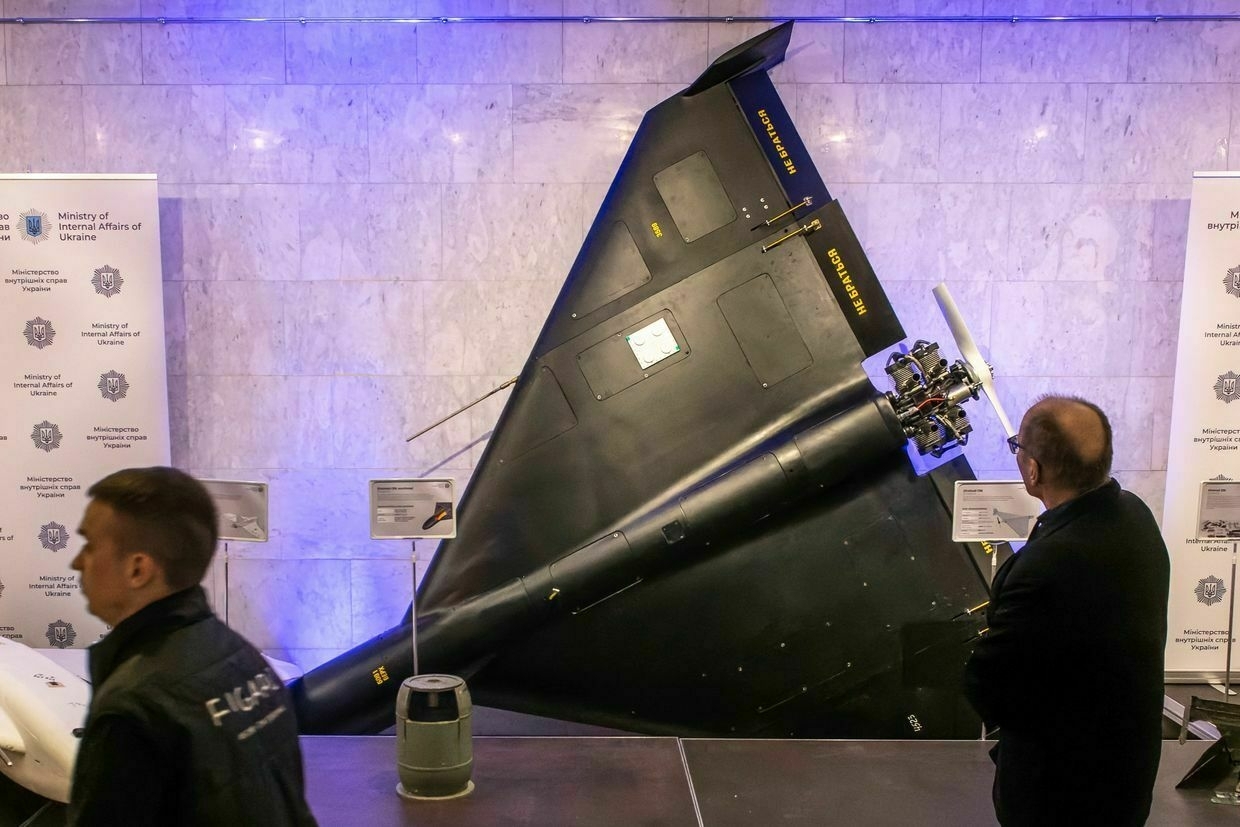
The Iranian-made unmanned aerial vehicle Shahed-136 warhead, used by Russia as the Geran-2, is seen on display at an exhibition in Kyiv, Ukraine, on Feb. 24, 2025. (Maxym Marusenko / NurPhoto via Getty Images) 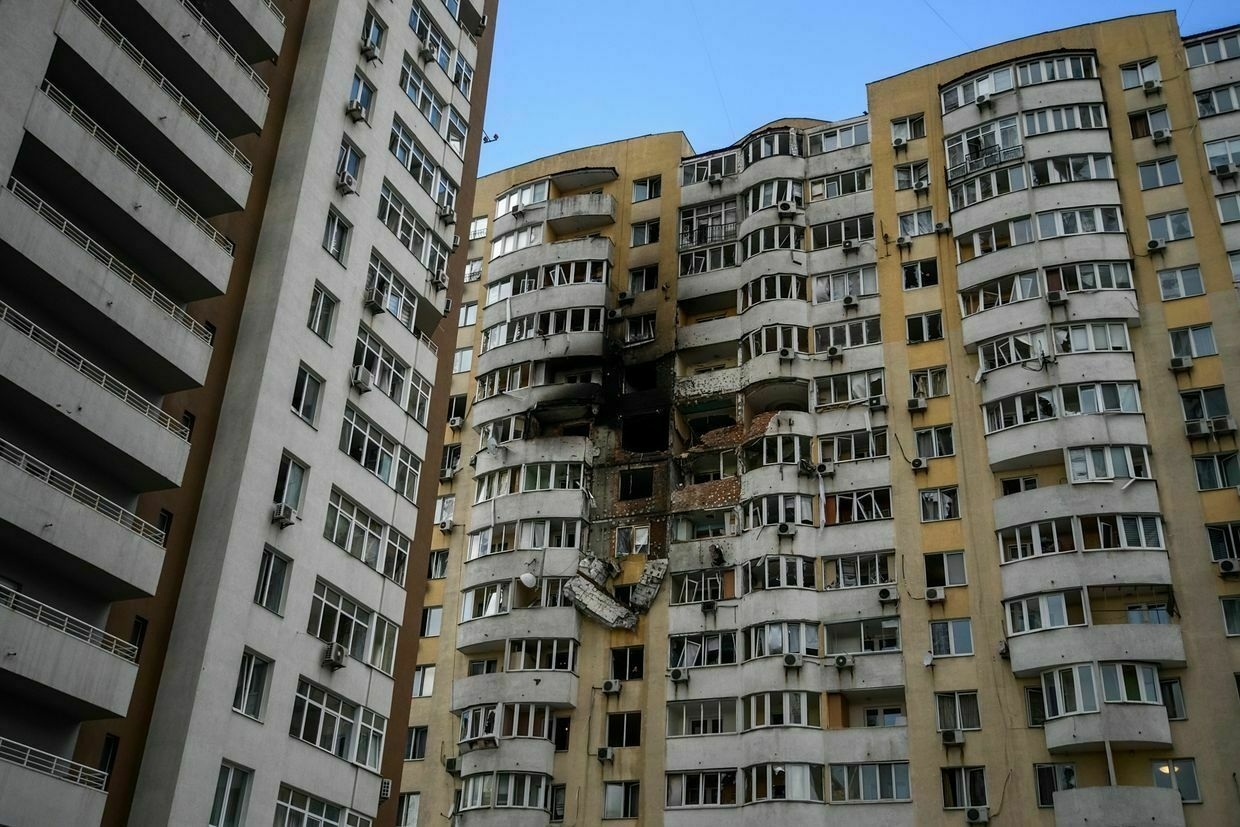
An apartment block in the Solomianskyi district is seen damaged by an overnight Russian attack in Kyiv, Ukraine, on June 6, 2025. (Maxym Marusenko / NurPhoto via Getty Images) Another new anti-Shahed drone made an appearance in a video Zelensky posted early in April, touting co-production with Belgium. The announcement said that as of then, it had downed upwards of 20 Russian drones of that kind. Those drones seem to have been another kamikaze model called the Shulika.
Danyliv says it was already clear last year that Ukraine would need to modify drones to take down Shaheds. He laments that the government only shifted focus to those anti-air developments in the past few months, once Shahed strikes were already escalating rapidly.
Despite government encouragement, Danyliv said the Defense Ministry has yet to sign a proper contract with any of the new anti-Shahed drone producers, though some anti-ISR drones like the Taras P that the Prytula Foundation backs have gotten them.
Russia has, moreover, been quicker to upgrade its Shaheds than Ukraine has been to upgrade its defenses against them, says Taras Chmut, the executive director of Come Back Alive, a charity that supplies soldiers with weapons. “Their number is growing faster than the opposition from Ukraine’s side — plus, these weapons are growing more technologically sophisticated.”
There are, the Defense Ministry told the Kyiv Independent, 10 models of interceptor drone undergoing testing for anti-Shahed performance at the moment. Danyliv estimates that four actually work against Shaheds and Gerans.
Chmut declined to identify the specific model that Come Back Alive funds, but tallied “close to 25 Shaheds and between 30 and 40 Gerbers” that its interceptors had shot down in the three months since they began prioritizing anti-Shahed defense.
The development is major enough to make the Ukrainian development of these drone-hunting drones a central point of drone co-production with, for example, the United Kingdom, alongside Ukraine’s much-touted flotilla of long-range drones.
The core advantage of an interceptor drone like this is precision on a budget. The Prytula Foundation tallied the success of its own funding of its earlier interceptor drones in a June 13 Facebook post that included shooting down one Gerbera drone. The cost of these interceptors, the fund reported, is just under $2,000, as compared to surface-to-air missiles, which cost from $40,000-$100,000.
The average for interceptors that take out Shaheds is closer to $5,000, Danyliv and Chmut both said.
Domestic air defense missile production is, to all appearances, non-existent, even for older generations of residual Soviet surface-to-air missiles like the S-300s. When reached, a representative for the Strategic Industries Ministry declined to comment on that production, citing “a matter of security.”
Ukraine is courting more advanced missile systems from the U.S., which has proved an inconsistent and unreliable provider. But its pre-war supplies of Soviet-era anti-air ammunition are, as Chmut put it, “mostly exhausted or are being searched out around the world in small quantities.”
“You can make a drone, for example, at a firm like us, fast, cheap, and en masse,” said the Wild Hornets representative. “While missiles for an S-300 are unique technologies, that maybe, seems to me, a few companies in the world can make, and more than half of those are in Russia.”
When it comes to shooting down Russian cruise and ballistic missiles, as well as the glide bombs Russia uses closer to the front, “for the time being interceptor drones cannot fully replace traditional air defense systems,” the Sternenko Community Fund representative wrote to the Kyiv Independent.
In addition to the speed and maneuverability of the new Shaheds, a core question is quantity. Russia has ramped up its production to 70 Gerans a day, and is sending ever-larger swarms by night.
Whether these new Ukrainian interceptors can clear the skies of swarms of sometimes 500 Shaheds at a time remains an open question.
The Ukrainians involved in making these drones declined to specify production rates. They anticipated that production expansion would take through the fall.
“It needed to happen yesterday,” said Danyliv. “We need to make it so the Russians cry bitter tears, so they’re afraid to take flight.”
Note from the author:
Hi, this is Kollen, the author of this article. Thanks for reading. With Russian forces massing at the front and air attacks intensifying across the country, Ukraine is holding up in the face of a tense summer. If you want more stories like this, consider joining our community today to help support our work.
How Russia’s Shahed drones are getting more deadly — and what Ukraine is doing about itEditor’s note: Due to the security protocols of the unit featured in this story, the Ukrainian soldiers are identified by first name only. Russia’s air strikes on Ukraine have become far more deadly in recent months. Part of the uptick is due to limited air defense to bringThe Kyiv IndependentKollen Post
